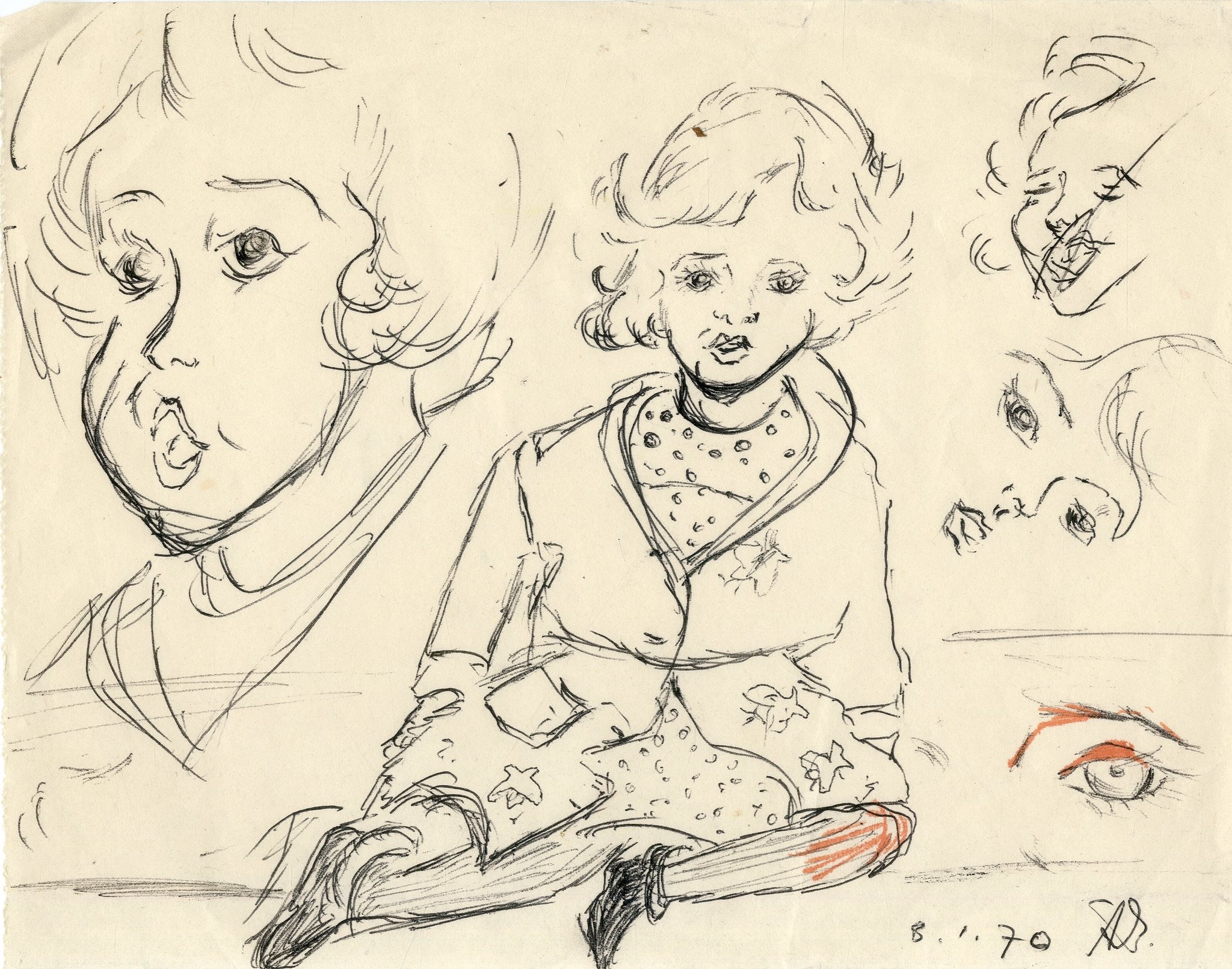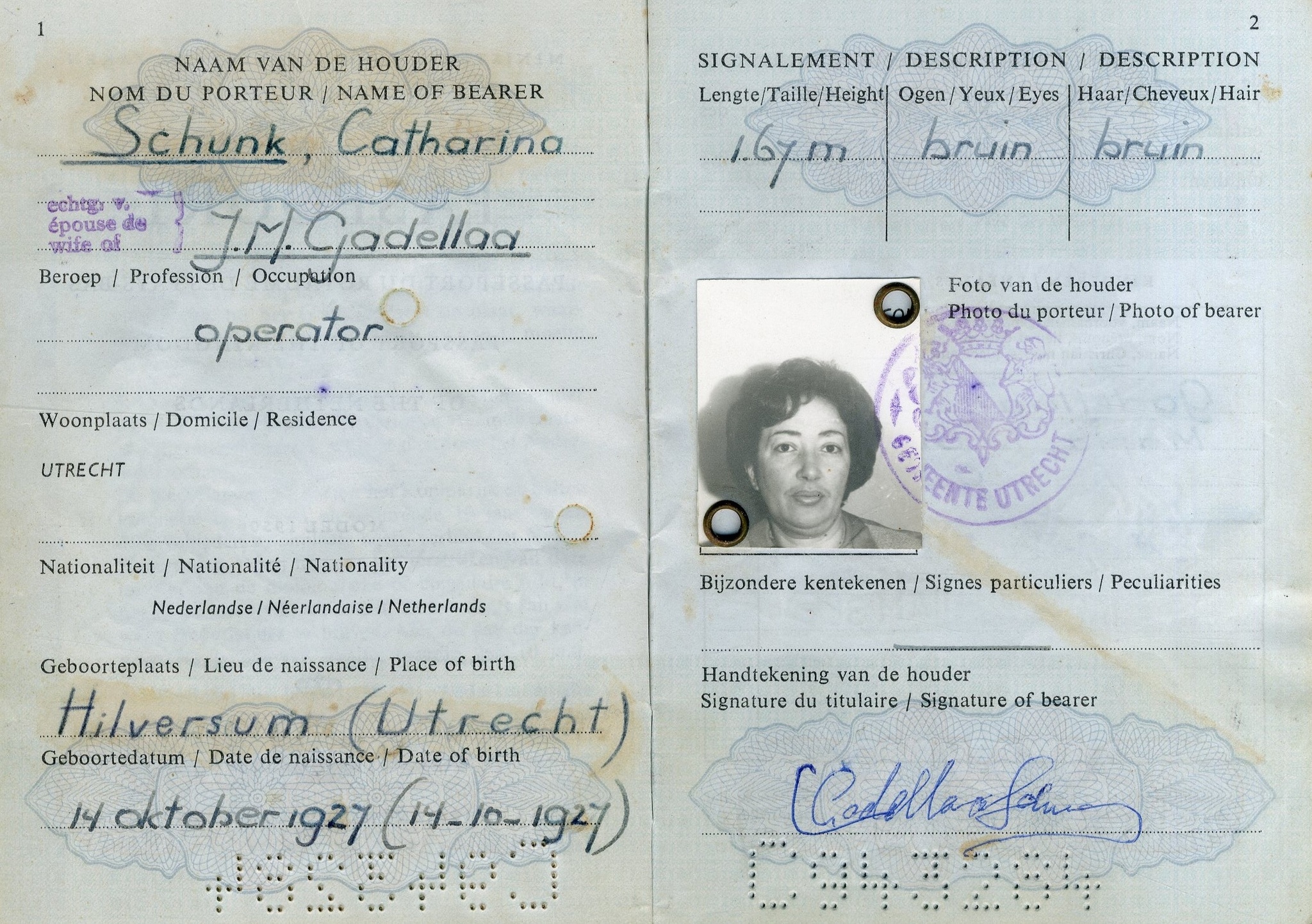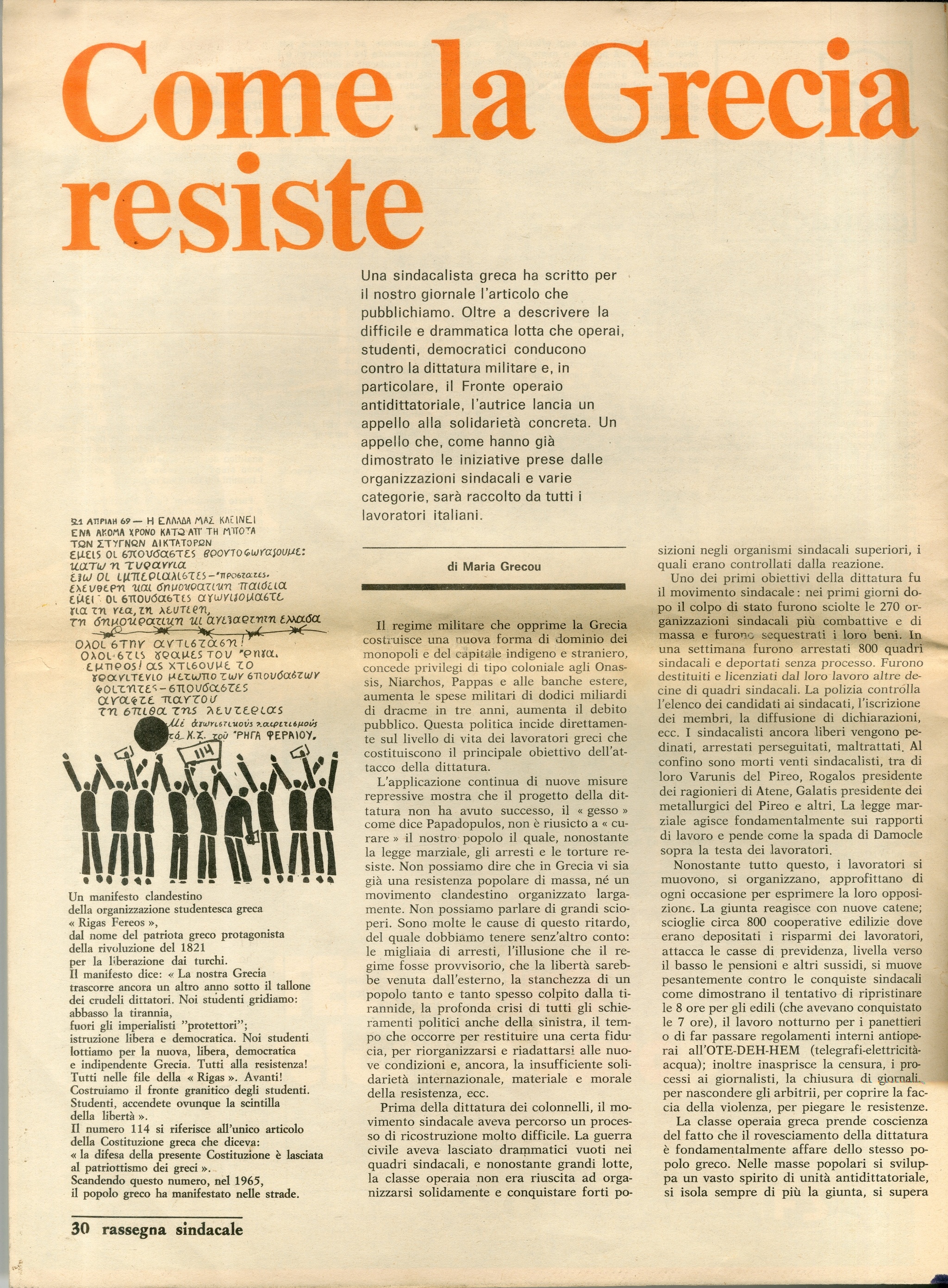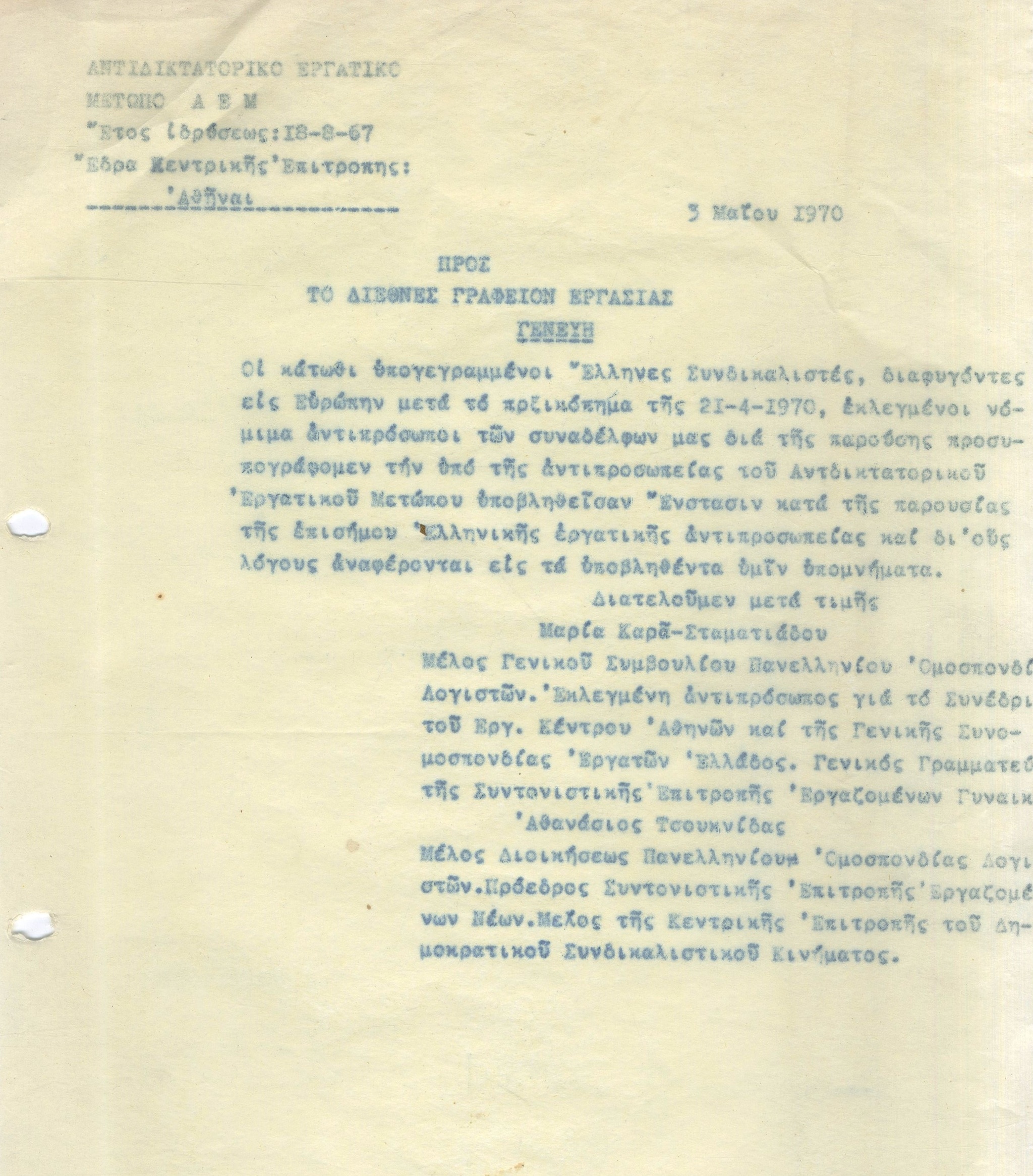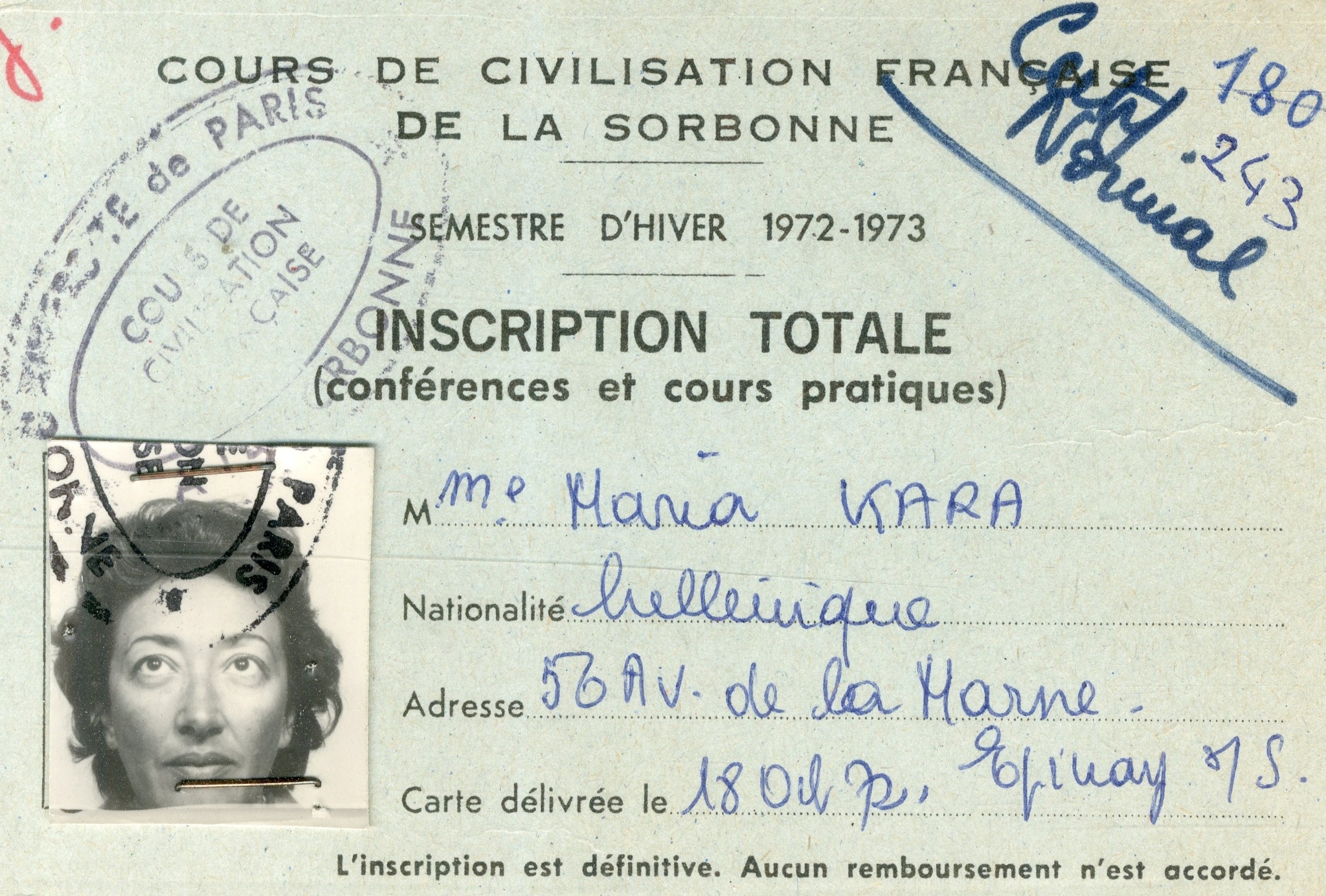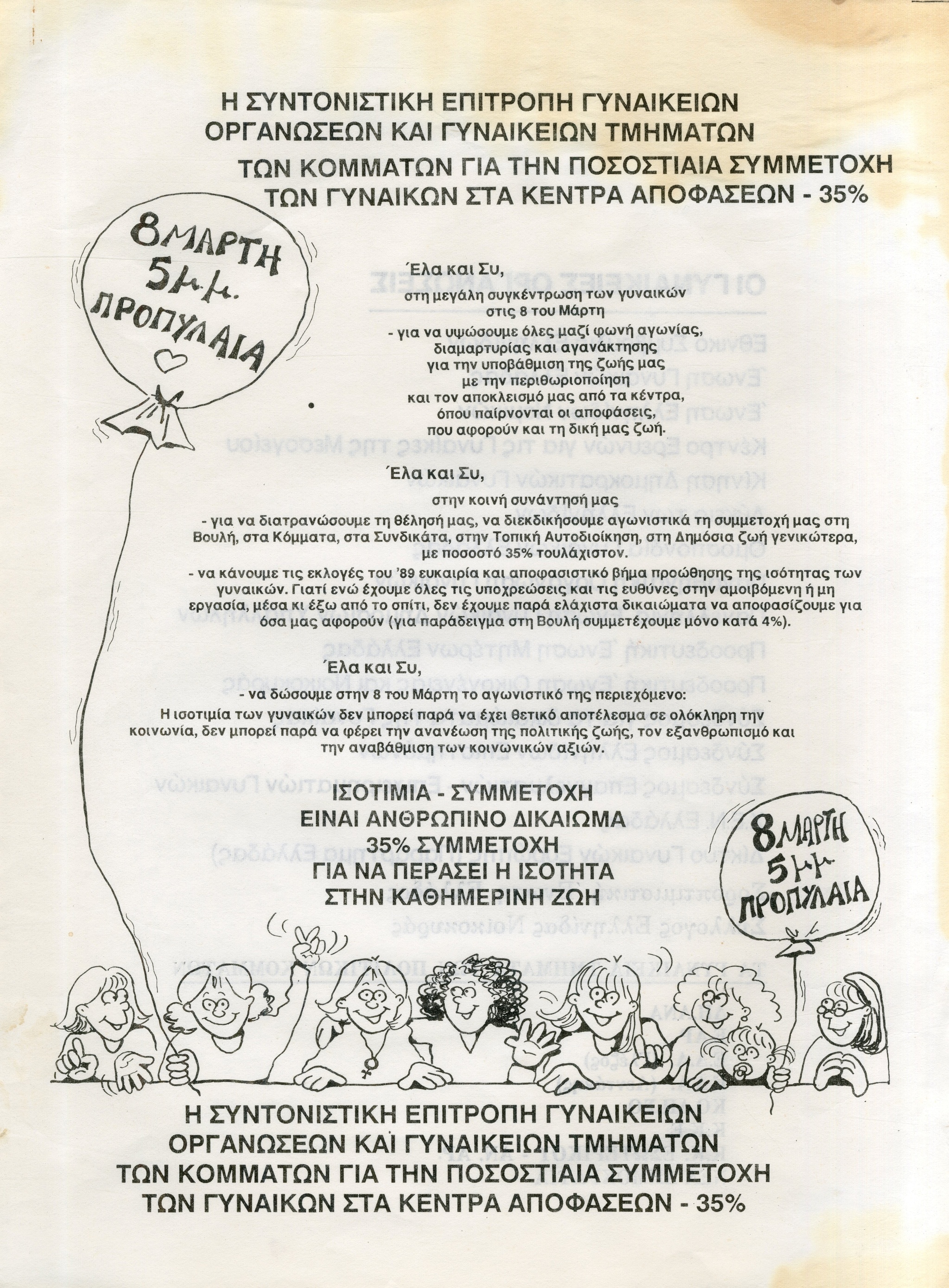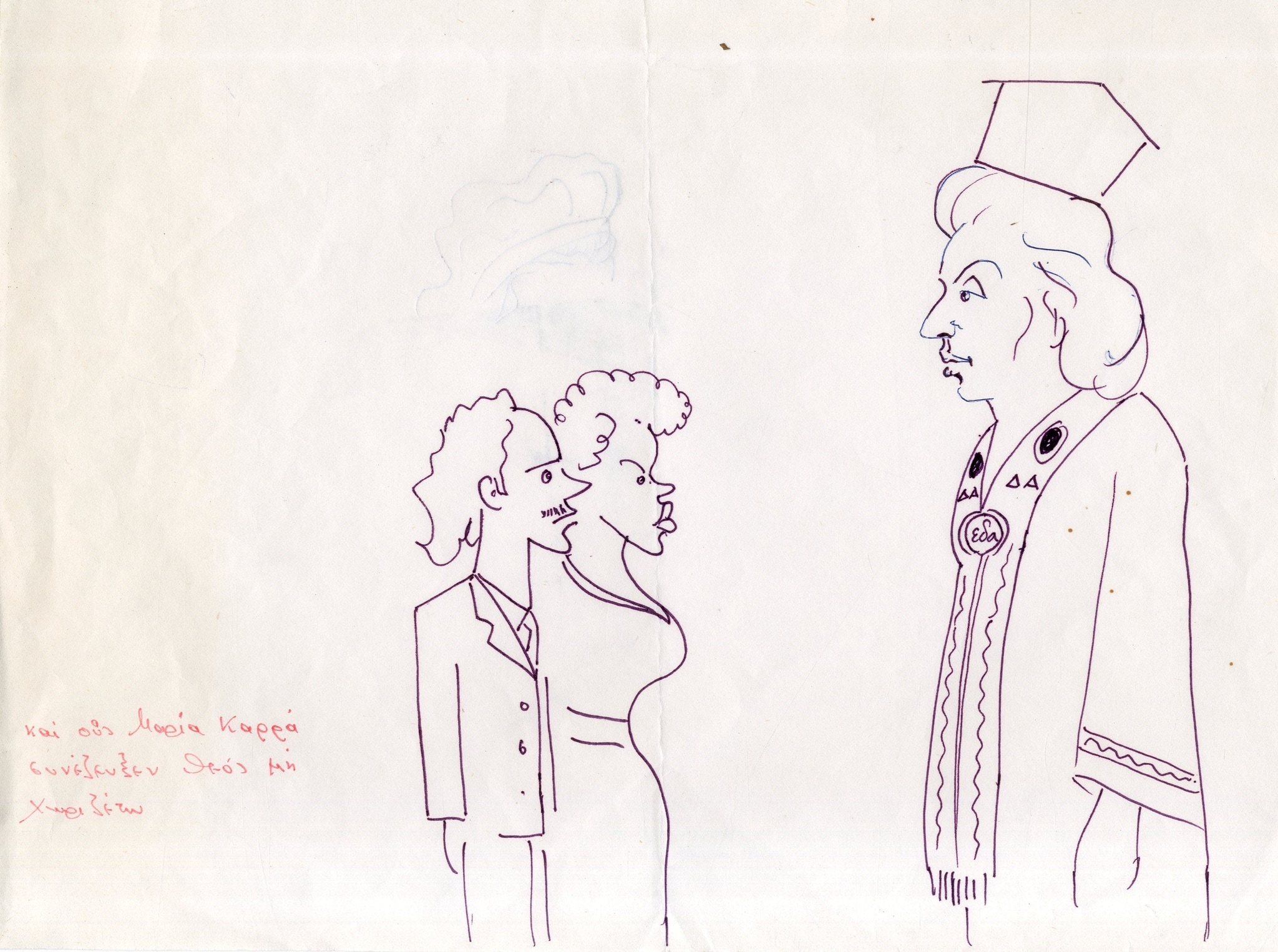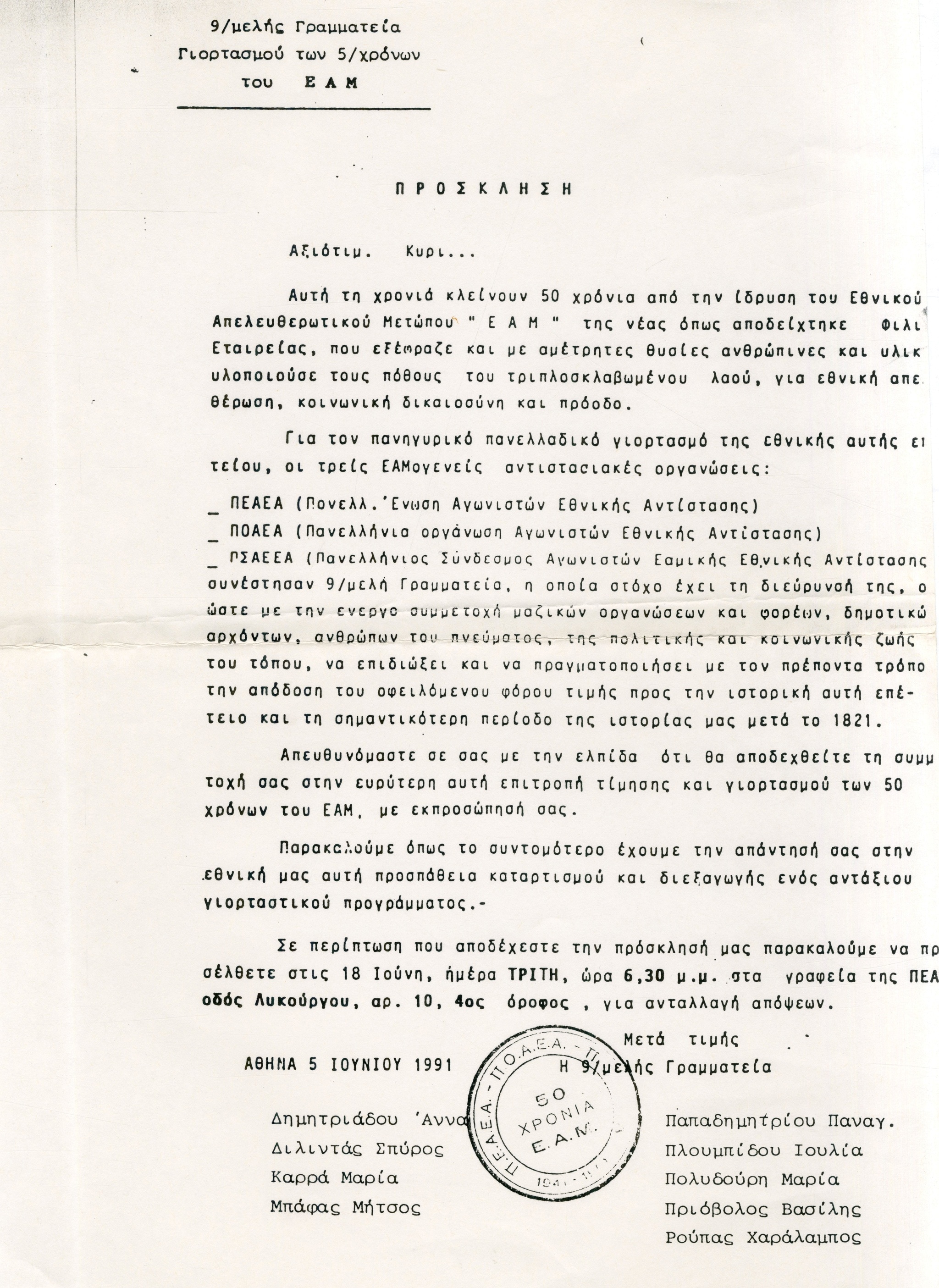We began to draw the veils of silence
In these difficult times that leftists faced during the conclusion of the civil war Maria did not sit by idly. As a political and social activist herself and with her husband in jail she participated from 1948 in the Panhellenic Union of the Families of Political Exiles and Prisoners (PEOPEF). As the general secretary she and other women of the movement campaigned for the basic rights of the political prisoners, a full amnesty as well as the end of the re-education camps in Makronisos, and the improvement of the living conditions of prisoners. Additionally they fought for the betterment of their access to healthcare, the financial and psychological support of their relatives, and aiding their rehabilitation. Maria remembers how “when we cross the streets of Athens the people stare at us oddly: 30, 40, 50, 60, 100 women mostly old and dressed in black, with the bitterness and the determination in our faces walking to the ministry of the Interior, at the political office. We have become their permanent guards, sometimes they arrest us and lead us to the police precincts, but we are determined”.
During a period when sentences were harsh for leftists, Maria and other women from PEOPEF, fought effectively to end the death sentence, with marches, publications, and memorandums that were aimed at the Greek and the global public as well as international organizations. For example, when 8 communists from Piraeus including her husband were sentenced to death in 1949, Maria managed to illegally gather statements from political prisoners in Makronisos as well as exiles abroad. With the help of the liaison of the Soviet news agency TASS in Greece, she managed to publish the “Greek Issue” which was discussed on the floor of the General Assembly at the UN in October of 1949, which voted to suspend the death sentences of Greek leftists. “Later we began to uncover the silenced suffering in Gioura, Kerkyra, and Kefalonia. In Australia, Switzerland, America, and France thousands of proclamations are distributed regarding Democracy and Amnesty in Greece”.
Of course, the conditions were not easy. Together with the economic hardships -she mentions that “many times the political prisoners paid for our ferry tickets”- they also had to deal with the persecutions from the state. “The security services harassed us constantly, trials and again trials, disbanding the PEOPEF and sending us to the military tribunal, constantly dragged to police stations to be terrorized, isolated and banished”.

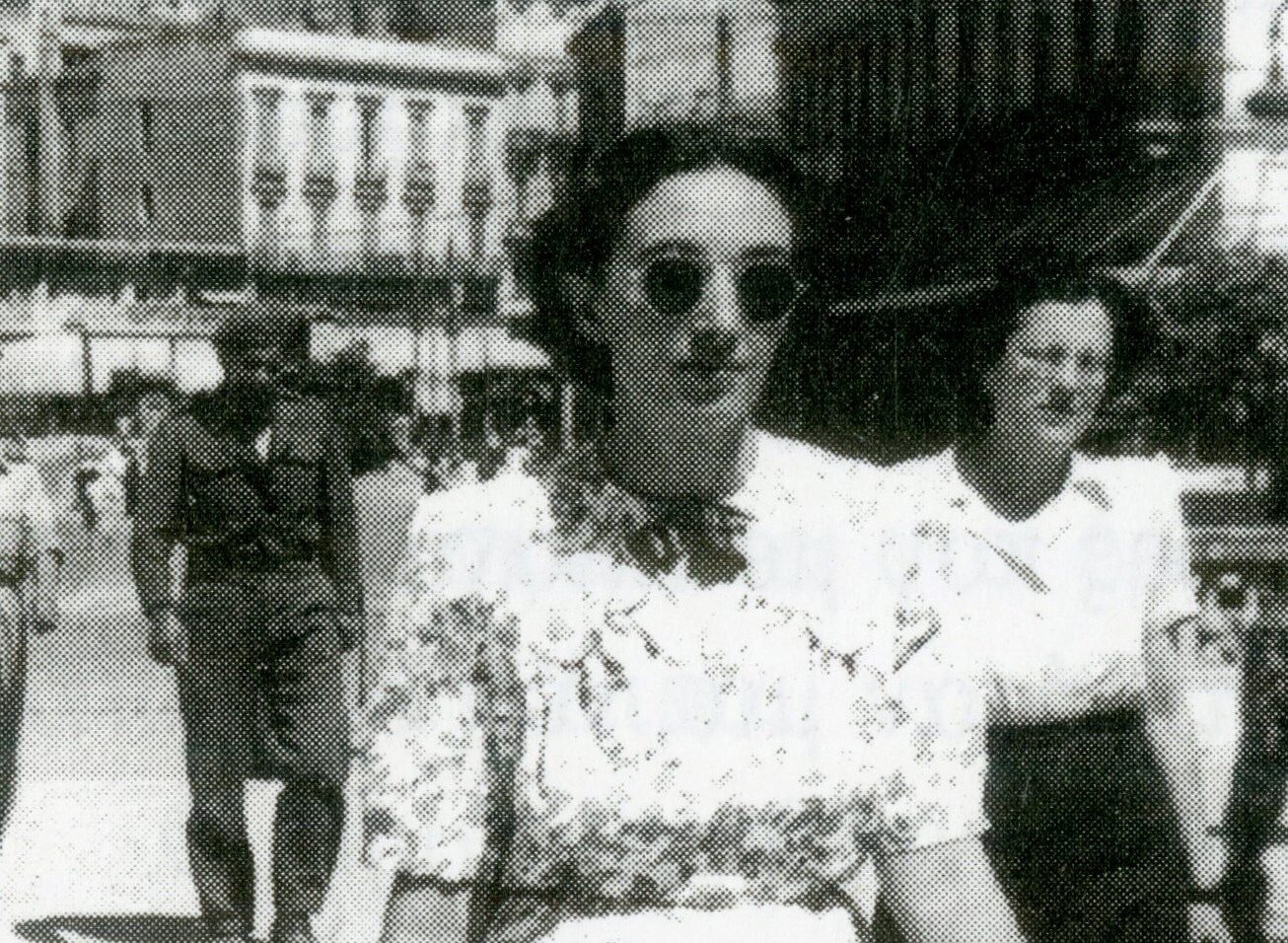
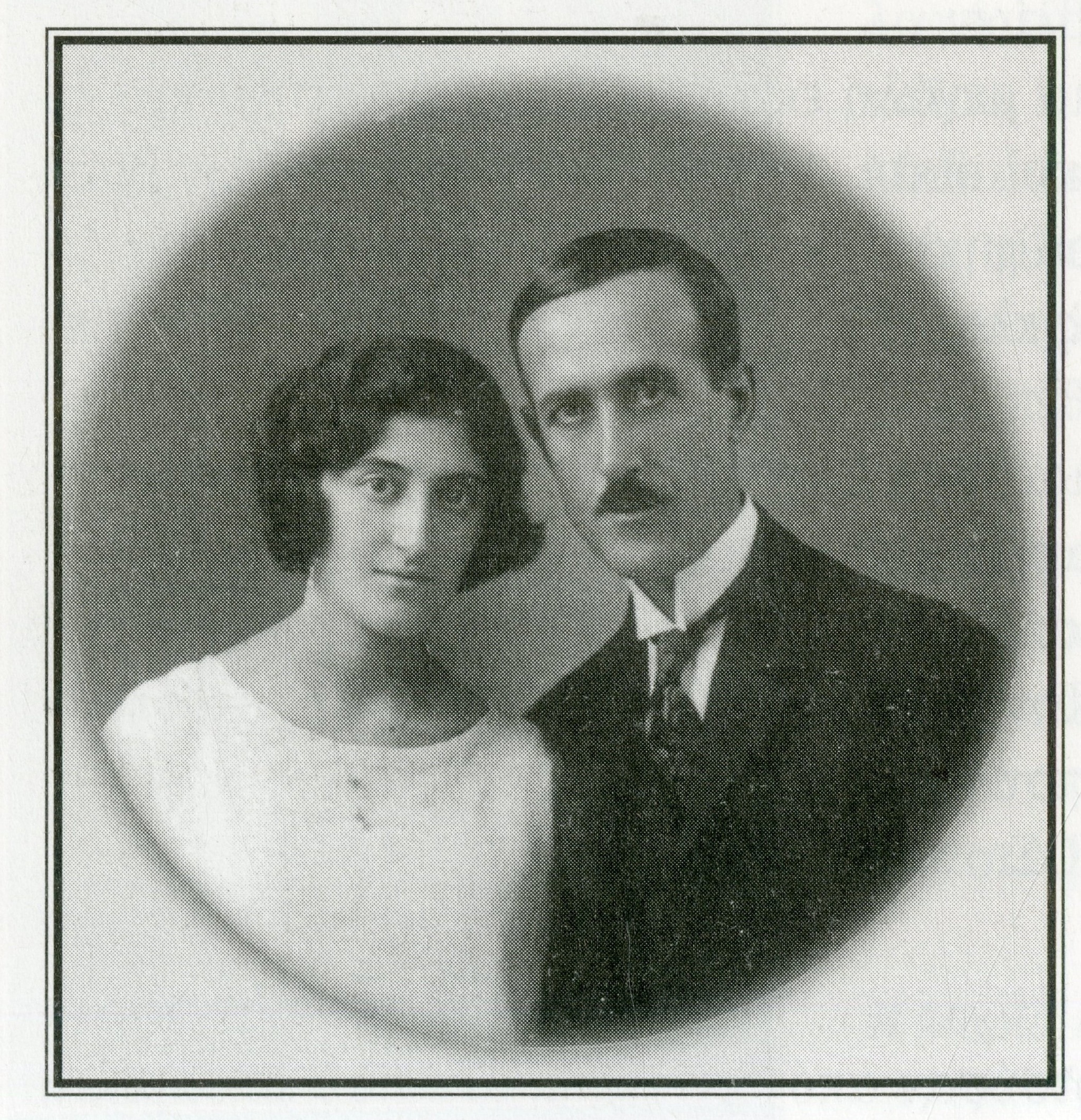
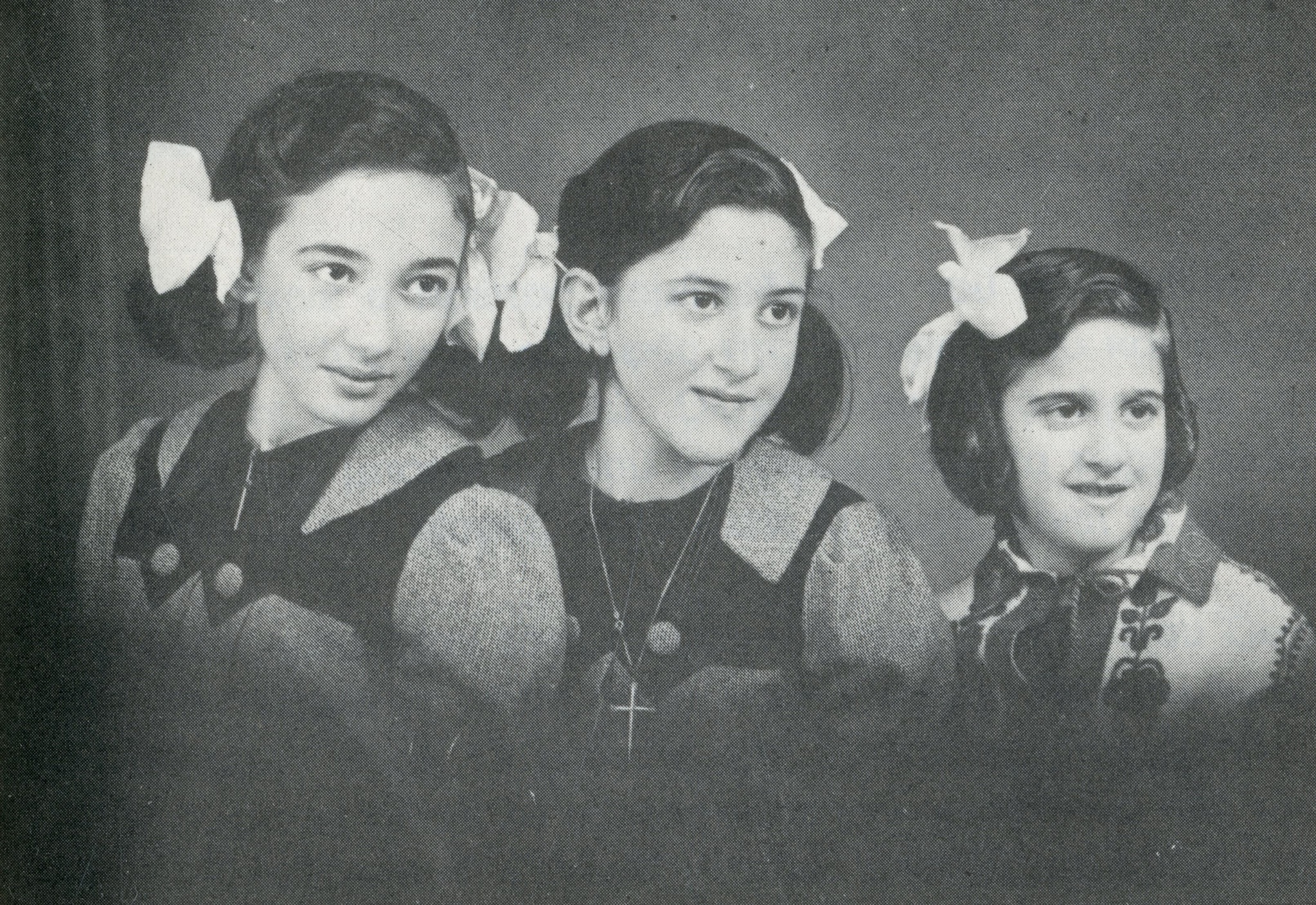
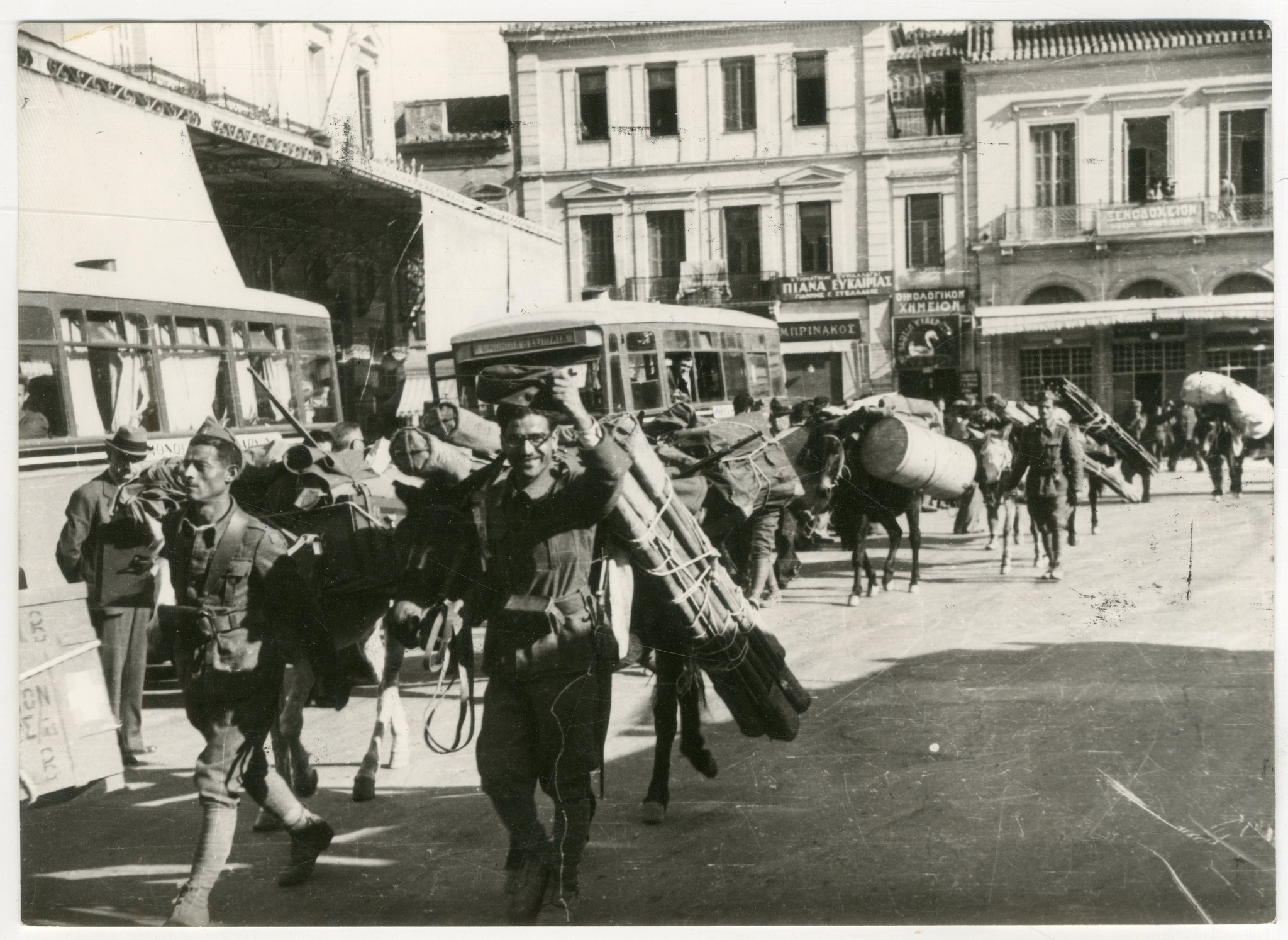
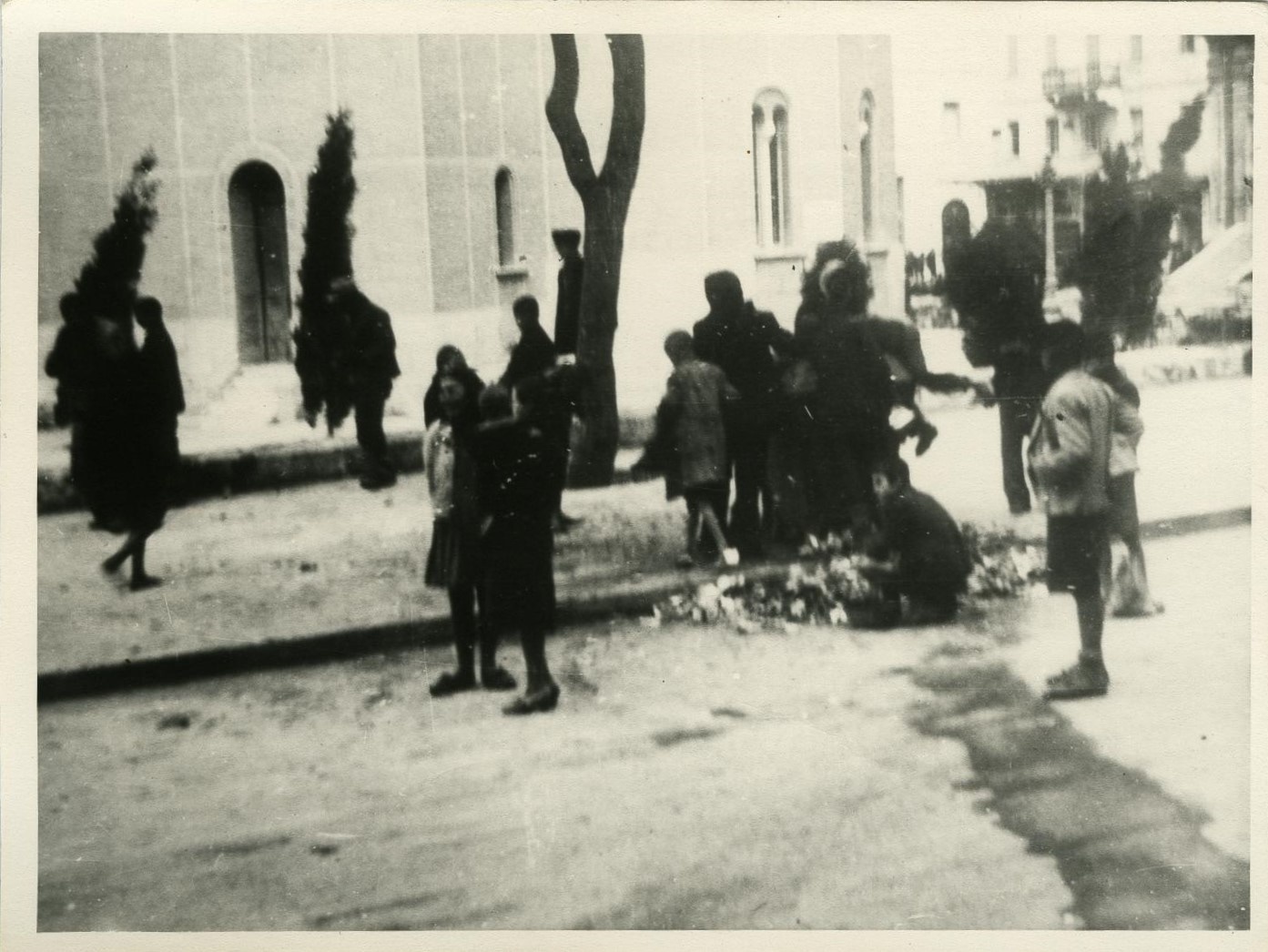
![Ellinopoules (Greek Girls), an illegal proclamation of EAM Youth addressed to young girls to support the guerrillas in the mountains, [1942-1943] (ASKI, EPON Archive)](https://aski.gr/wire/wp-content/uploads/2024/03/ASKI_Karra_05.jpg)
![Illegal poster (engraving) of EPON, the largest Greek youth resistance organization, calling on parents to integrate their children into its ranks, [1943-1944] (ASKI, EPON Archive)](https://aski.gr/wire/wp-content/uploads/2024/03/ASKI_Karra_06.jpg)
![Typed texts broadcasted by the young men and women of the Greek resistance organization EPON with a loudhailer, [1943-1944]. The verbal transmission of slogans and news, in a state of illegality, especially in the cities, was one of the main activities of the young resistance fighters (ASKI, EPON Archive)](https://aski.gr/wire/wp-content/uploads/2024/03/ASKI_Karra_08.jpg)
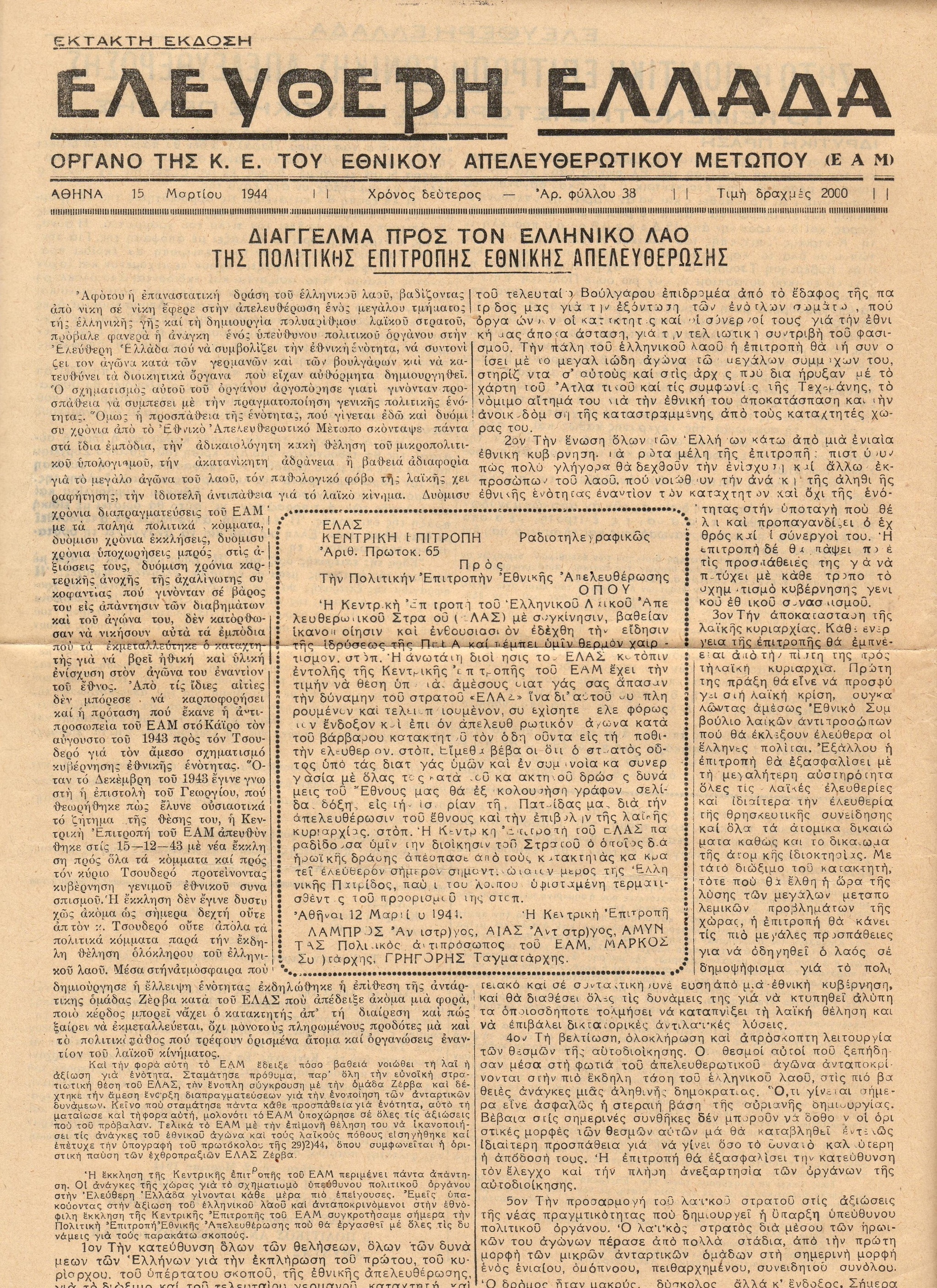
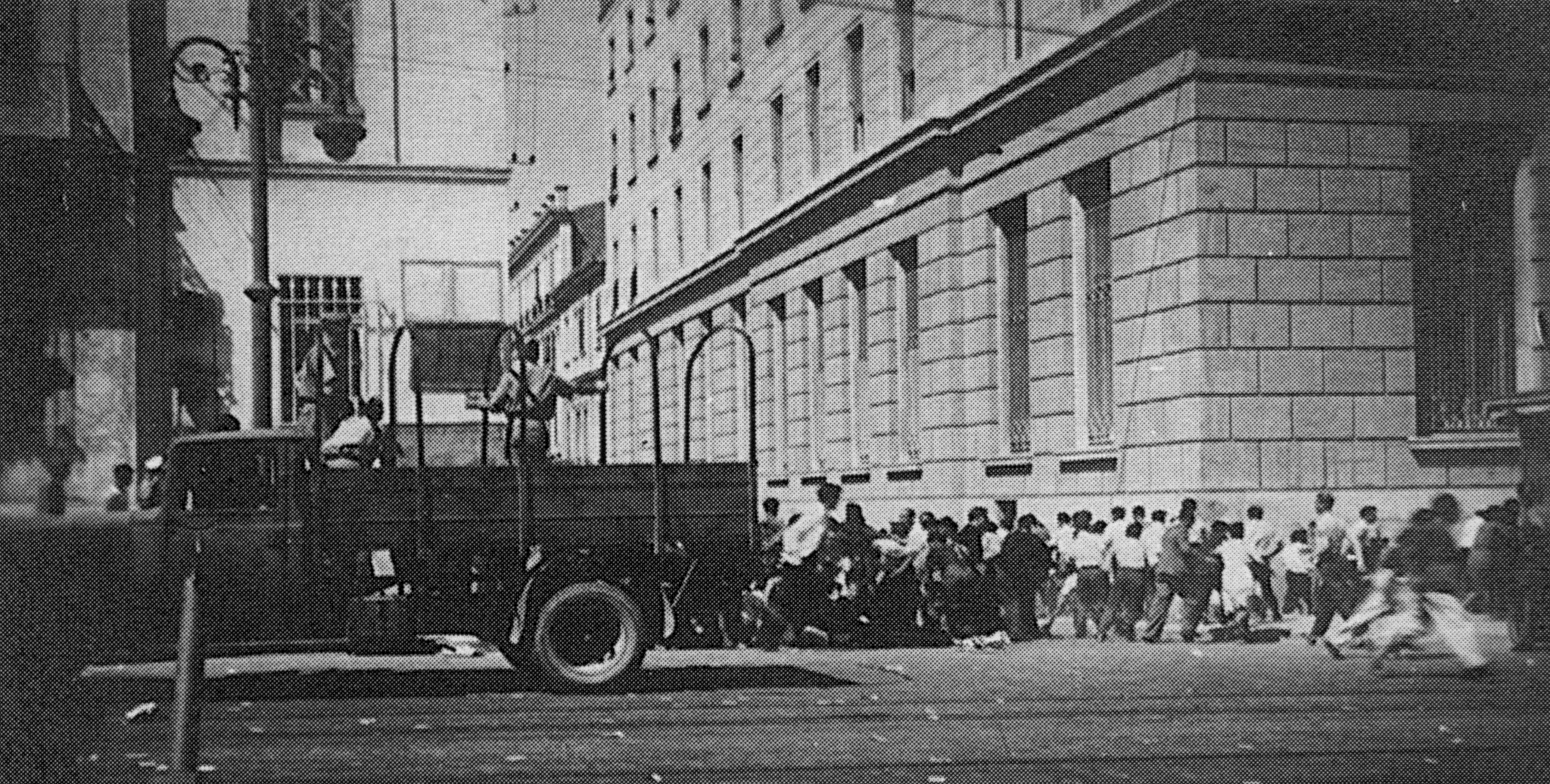
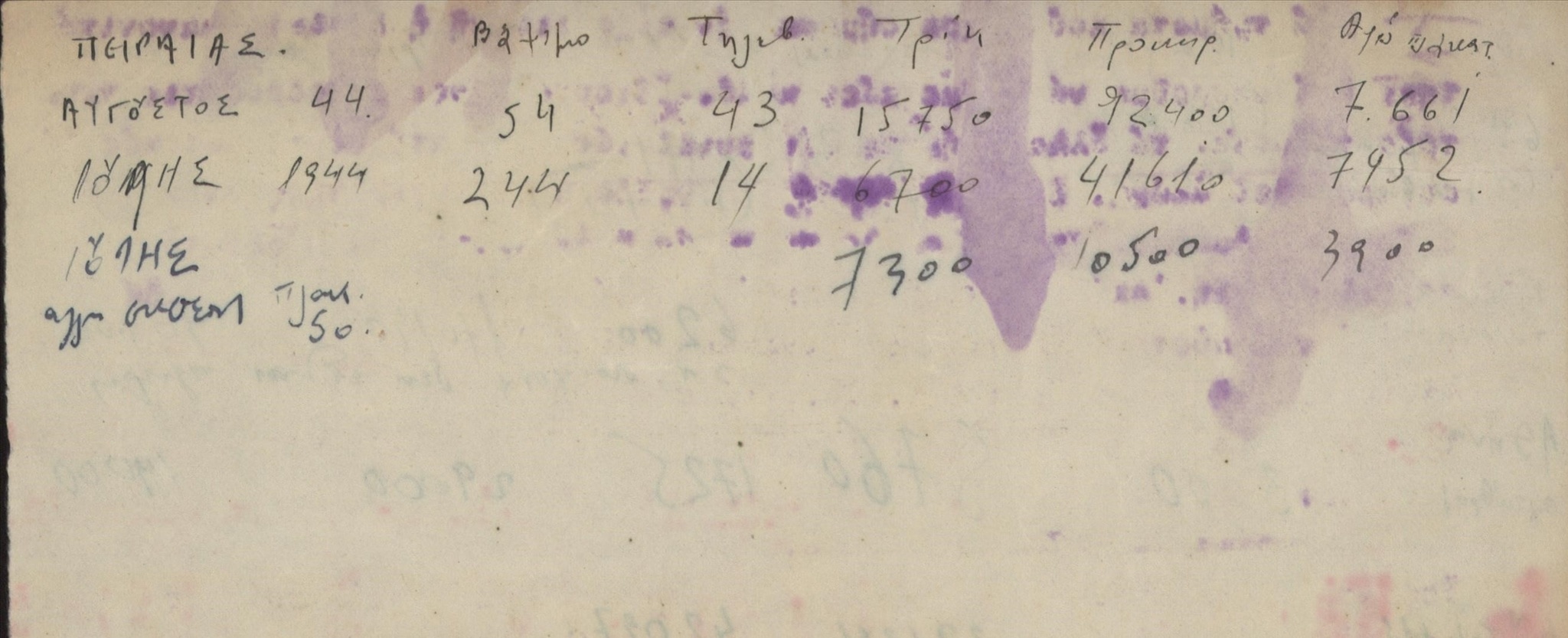
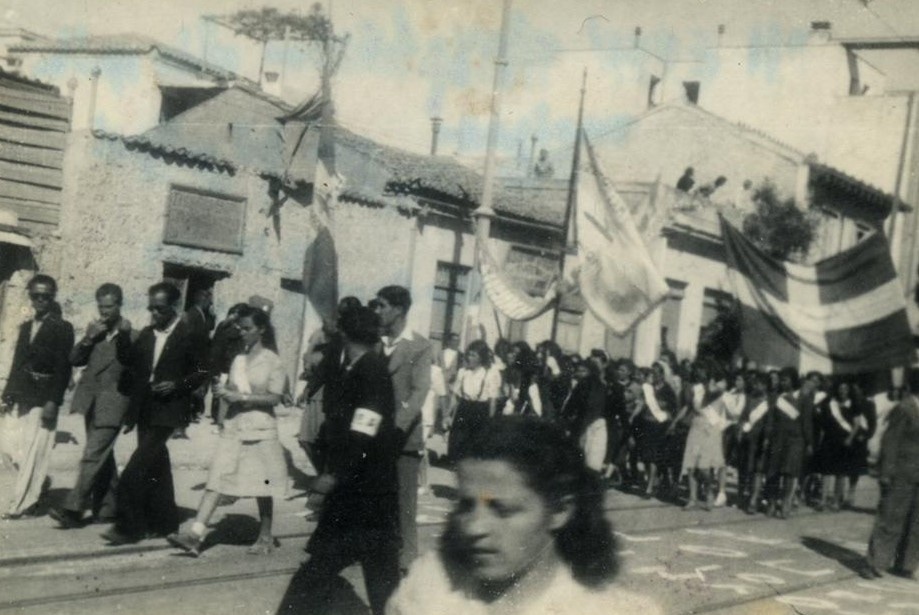
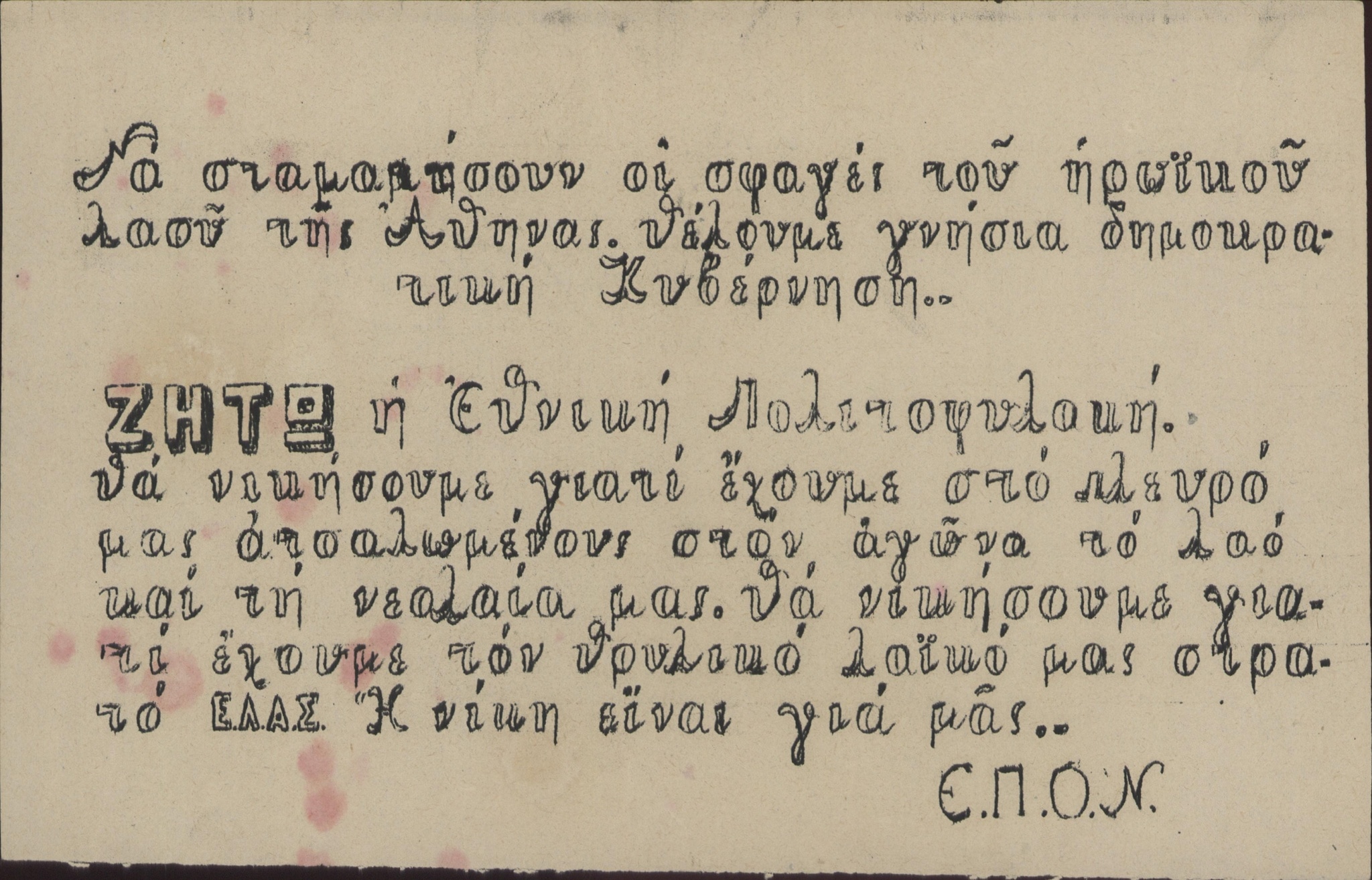
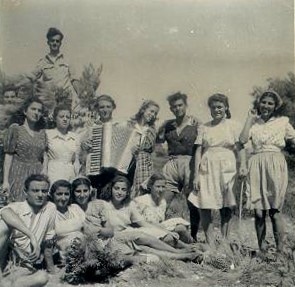
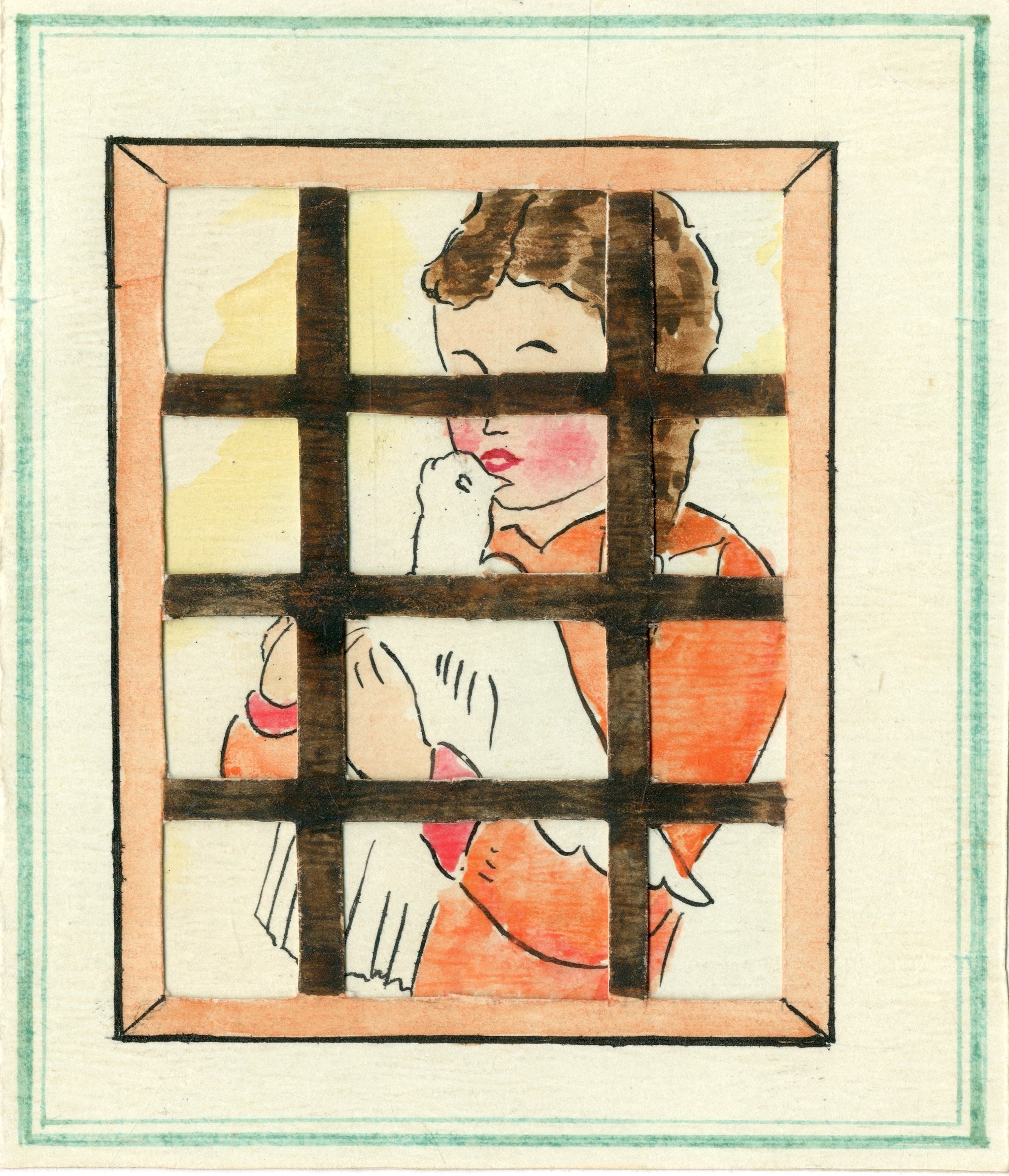
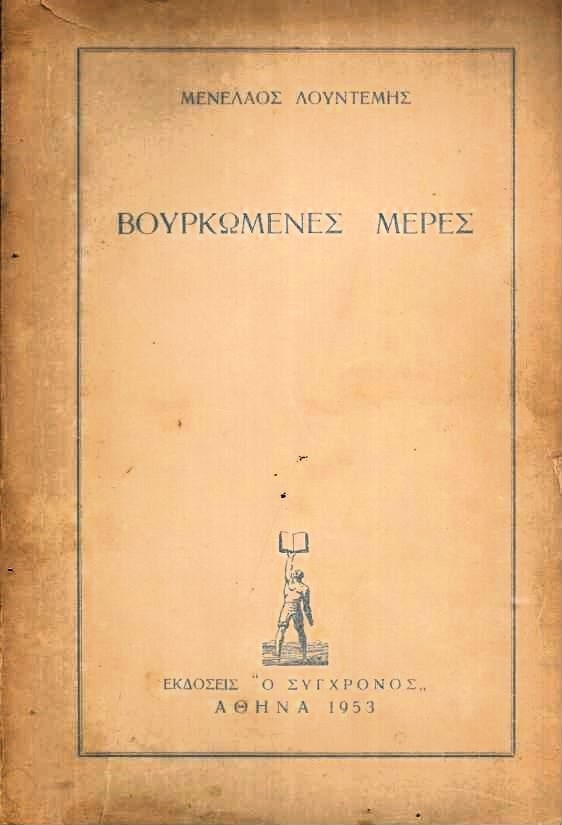

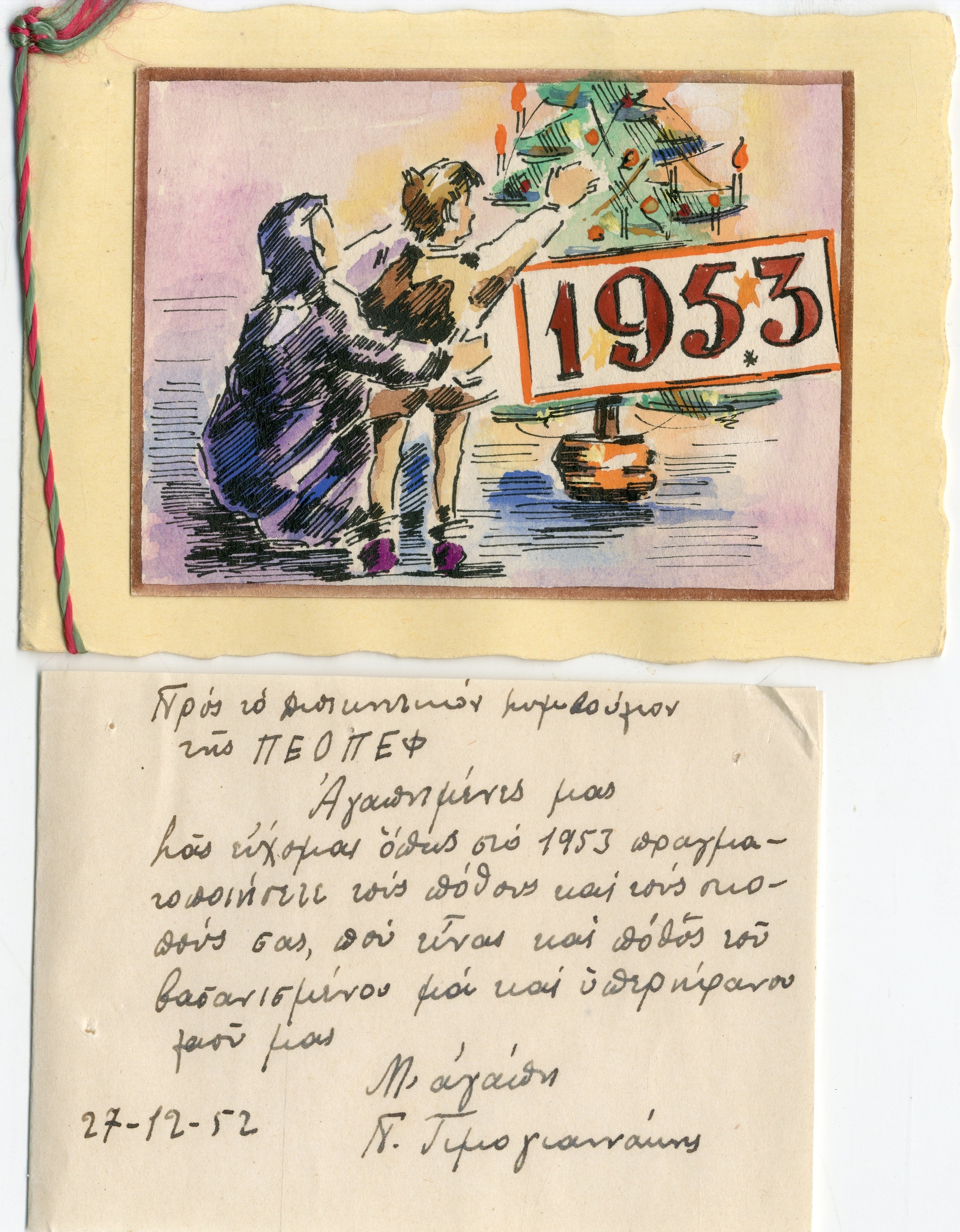
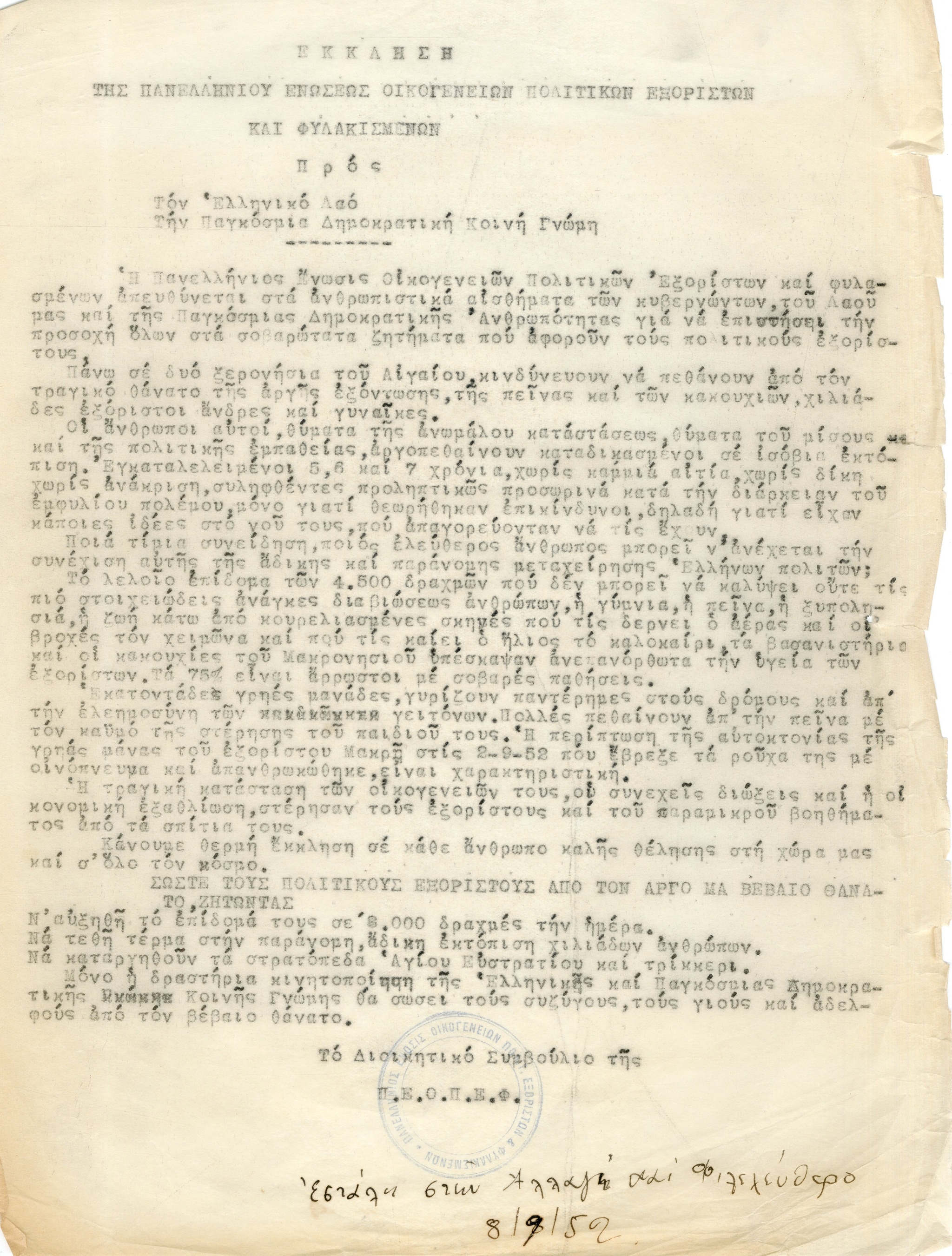
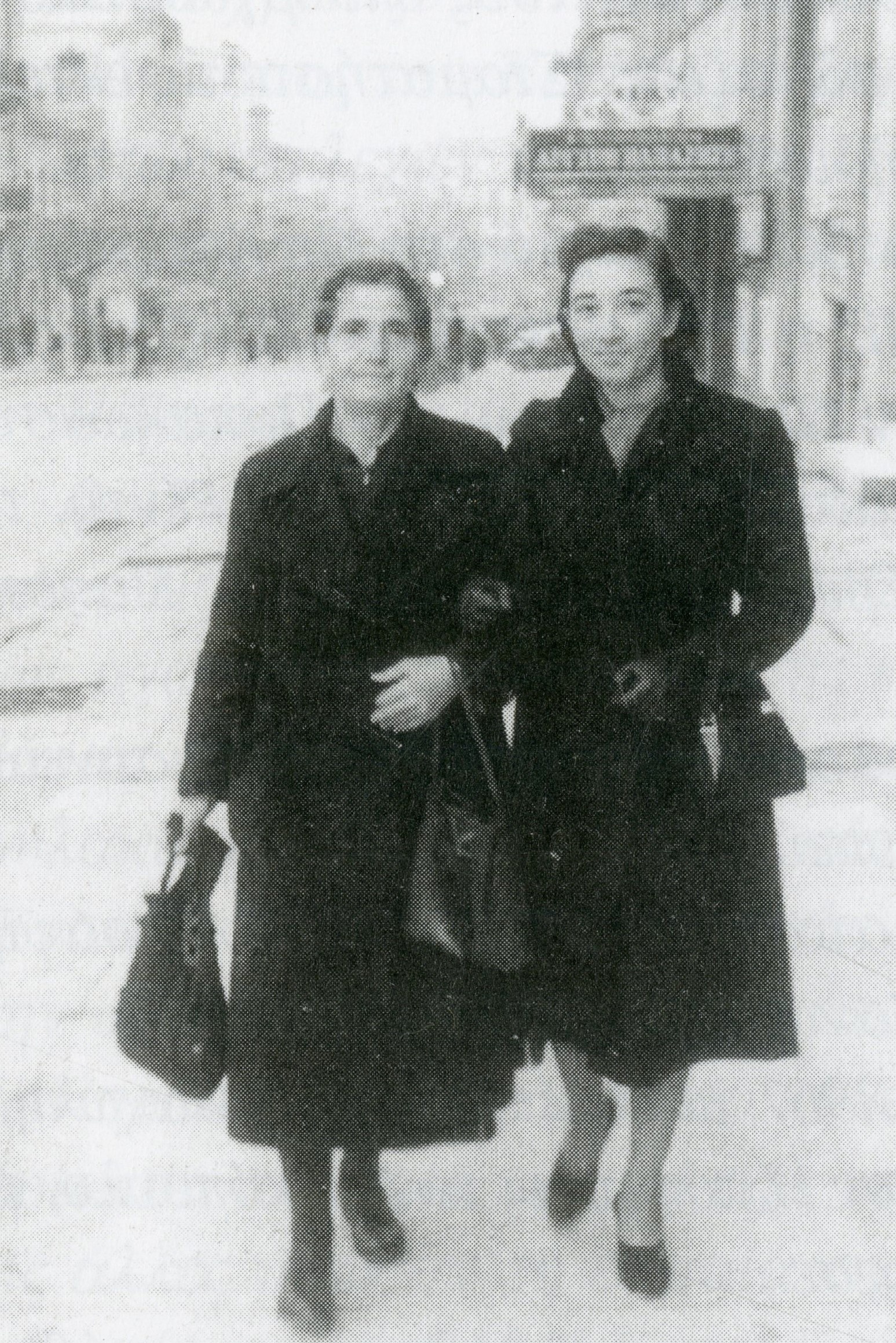
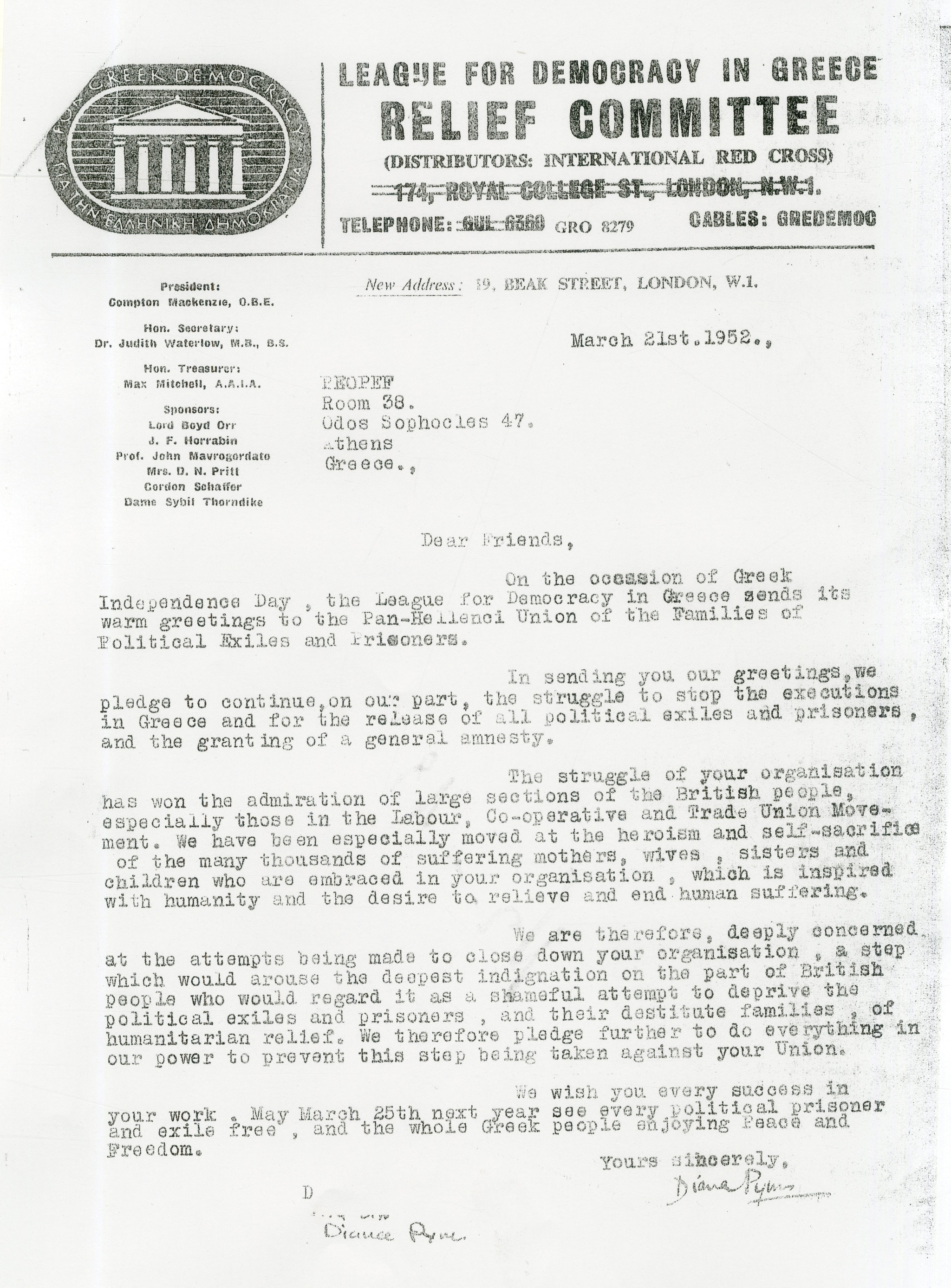
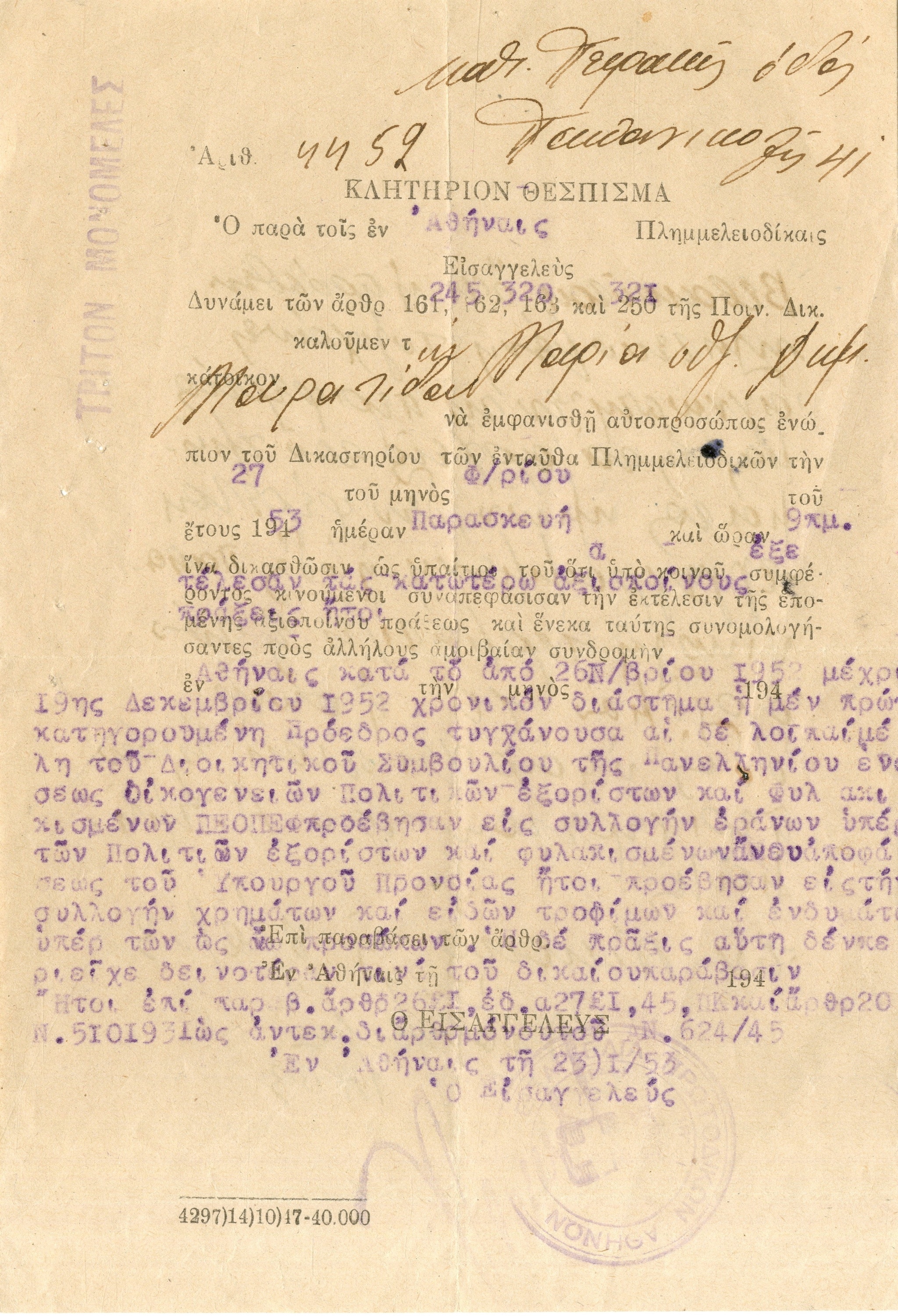

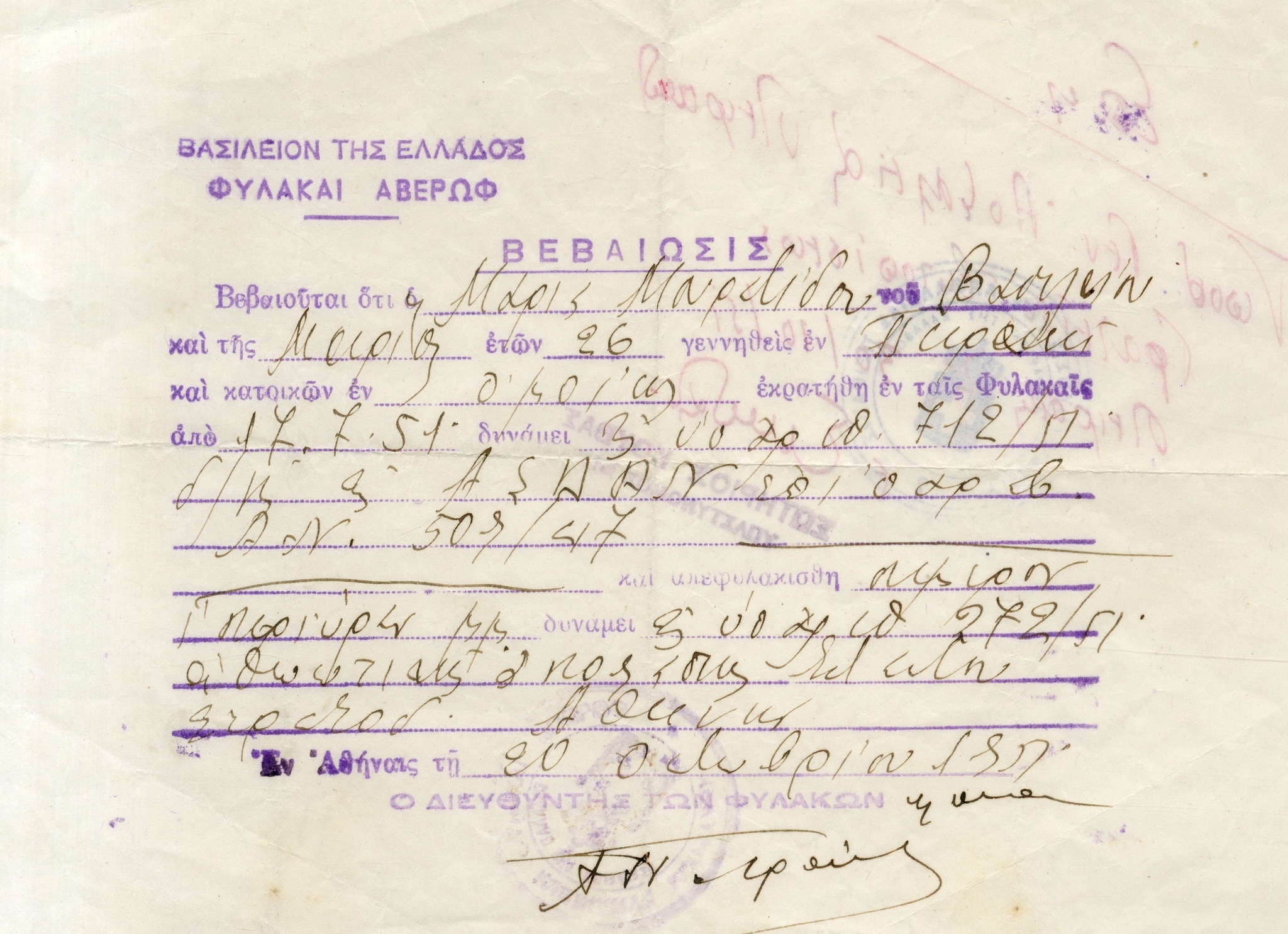
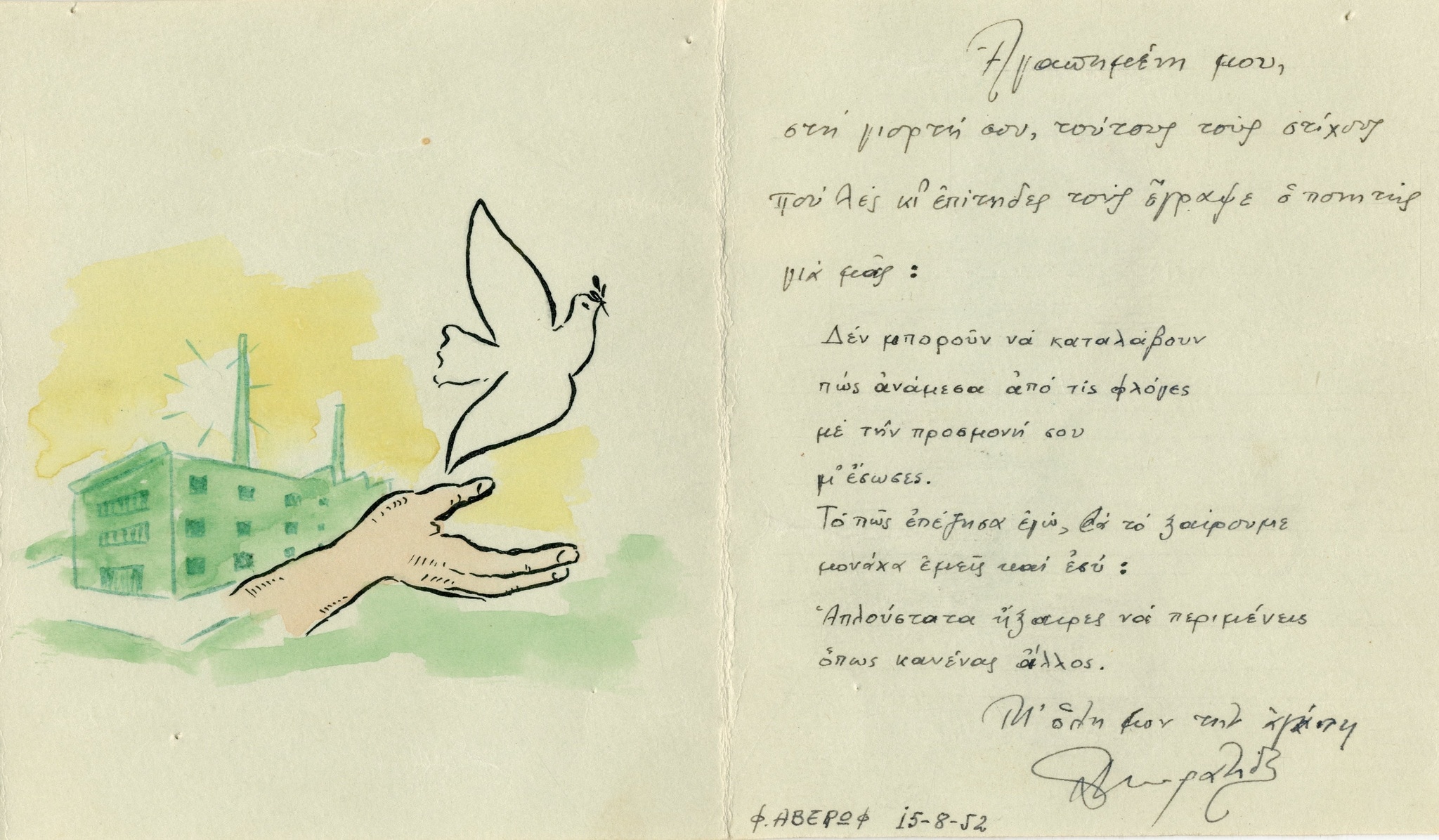
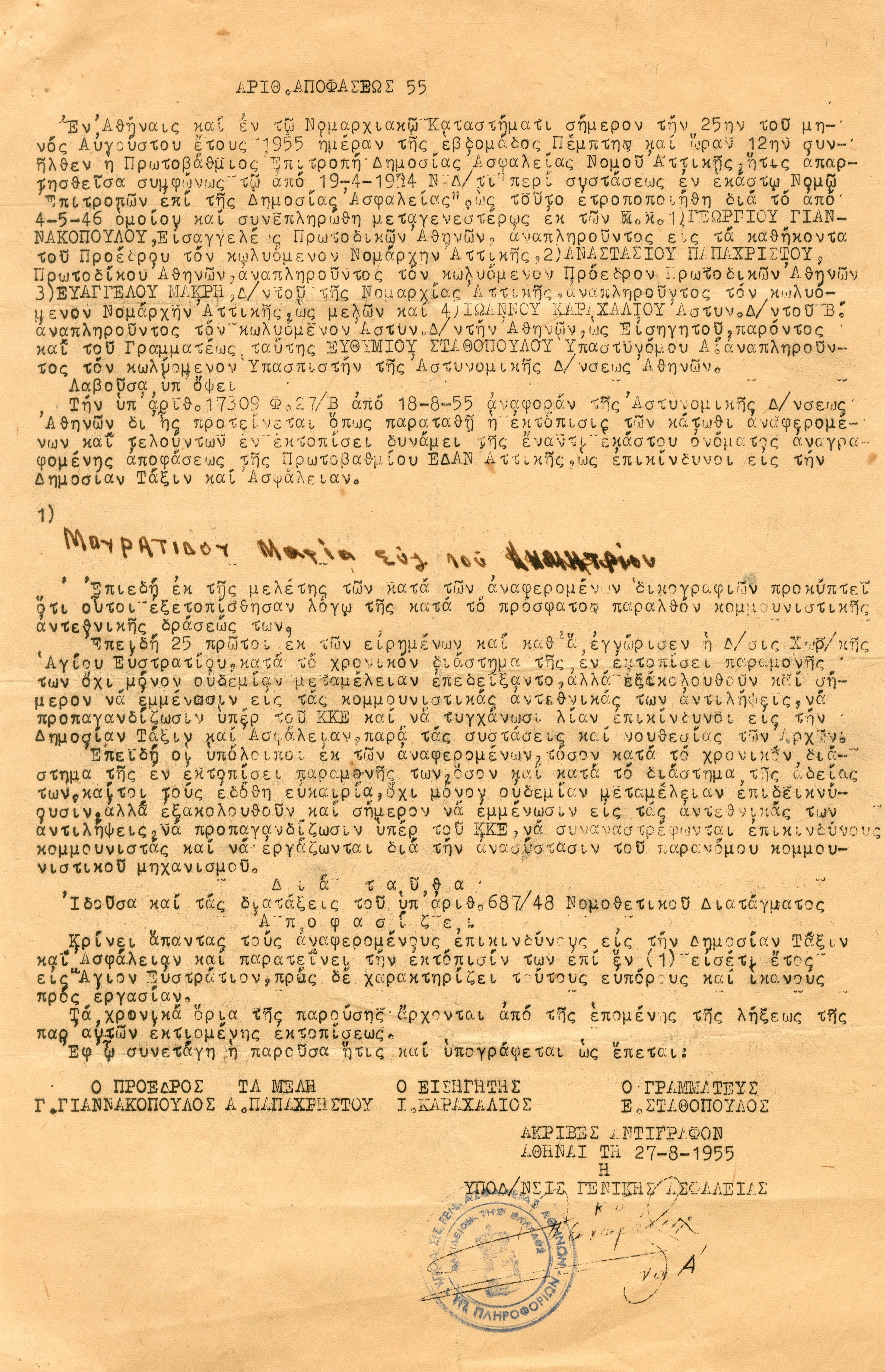
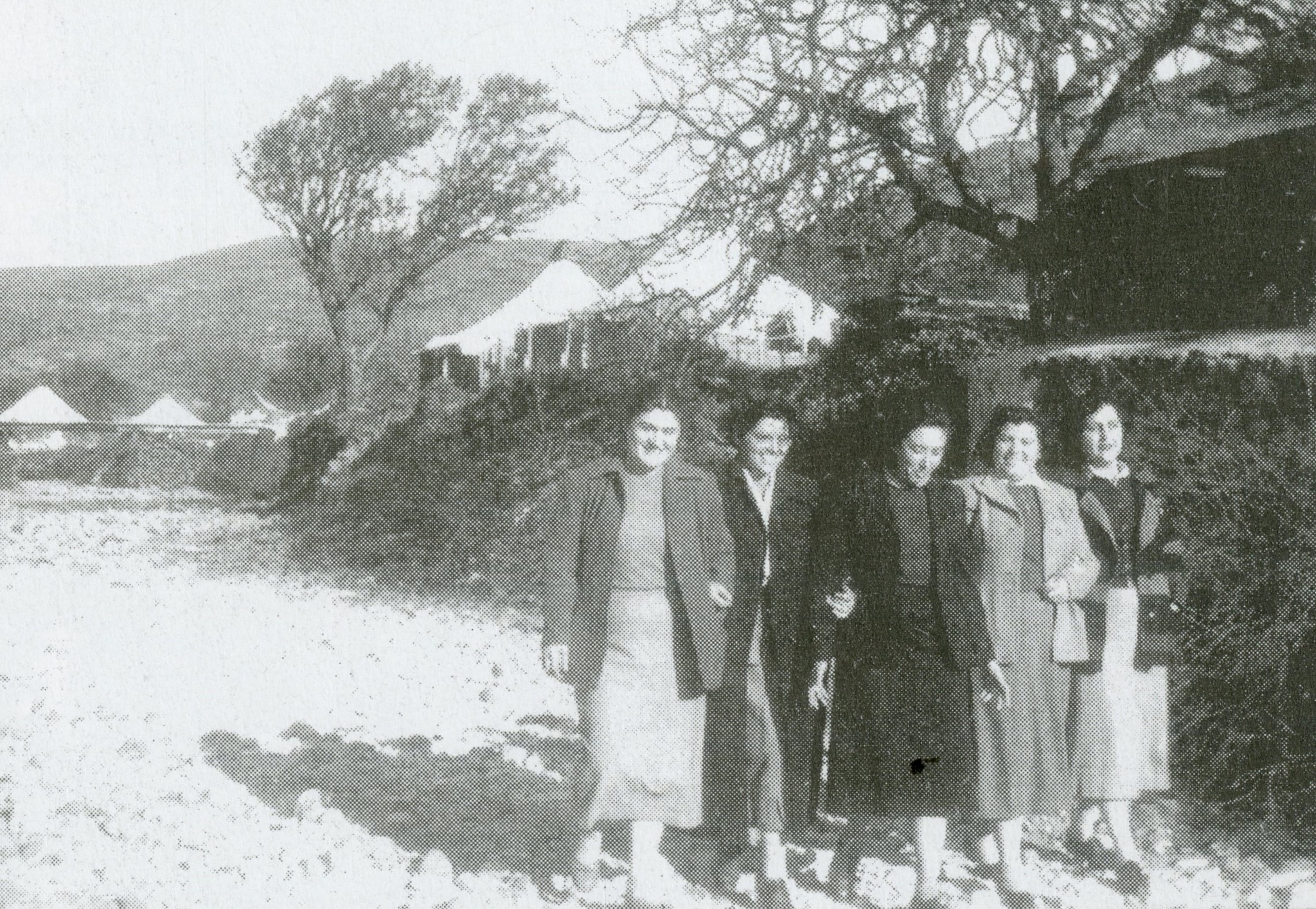
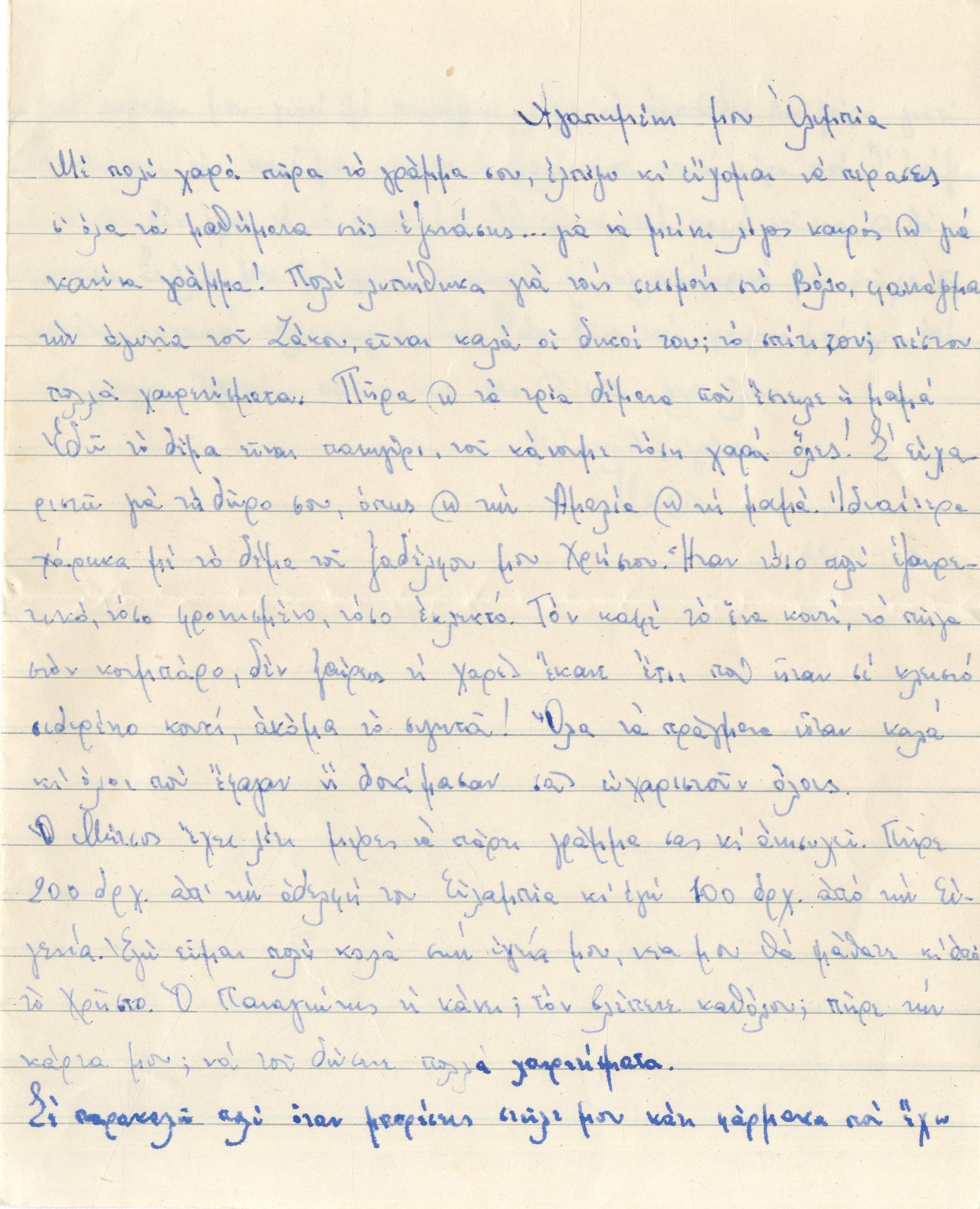
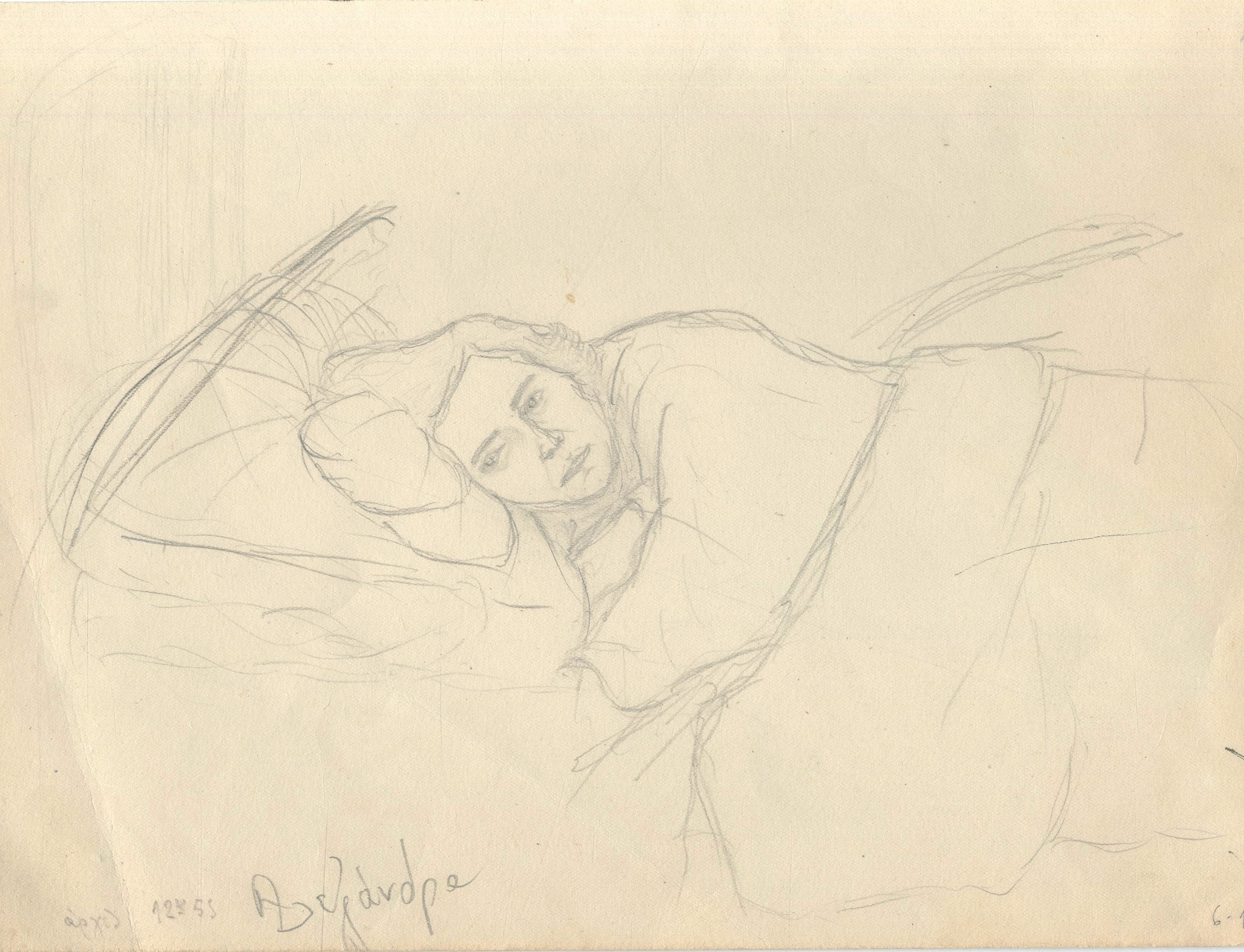
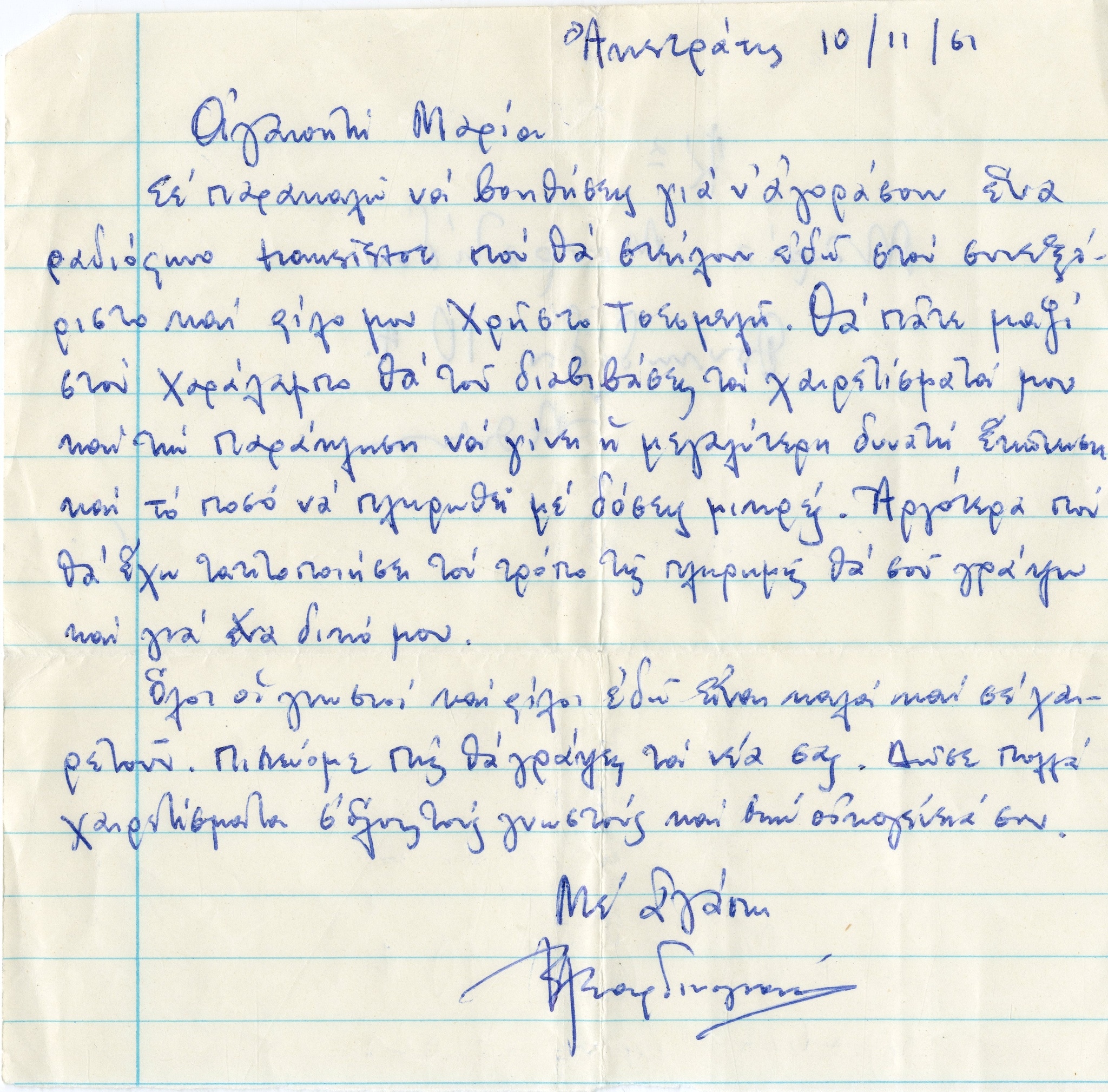
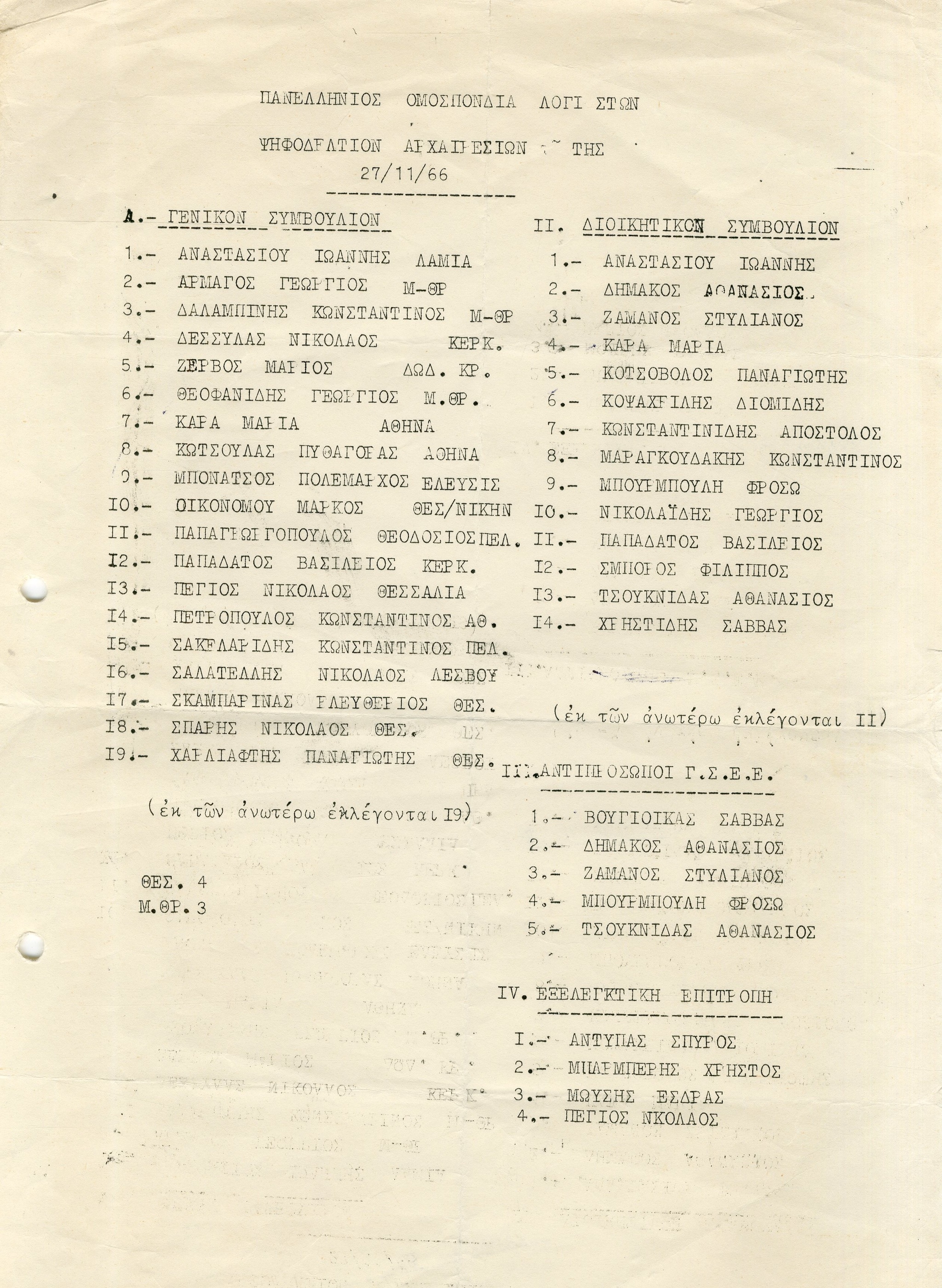
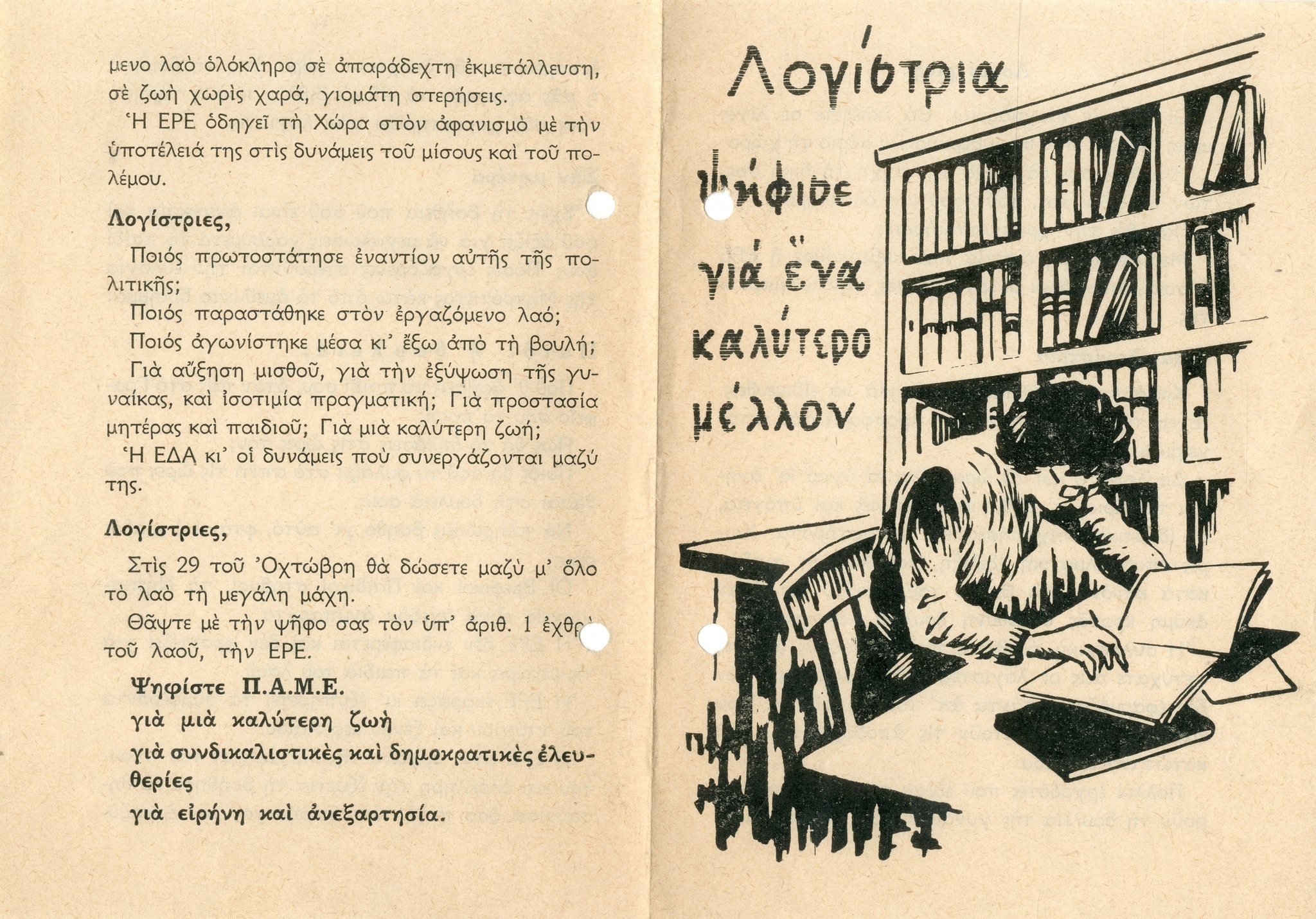
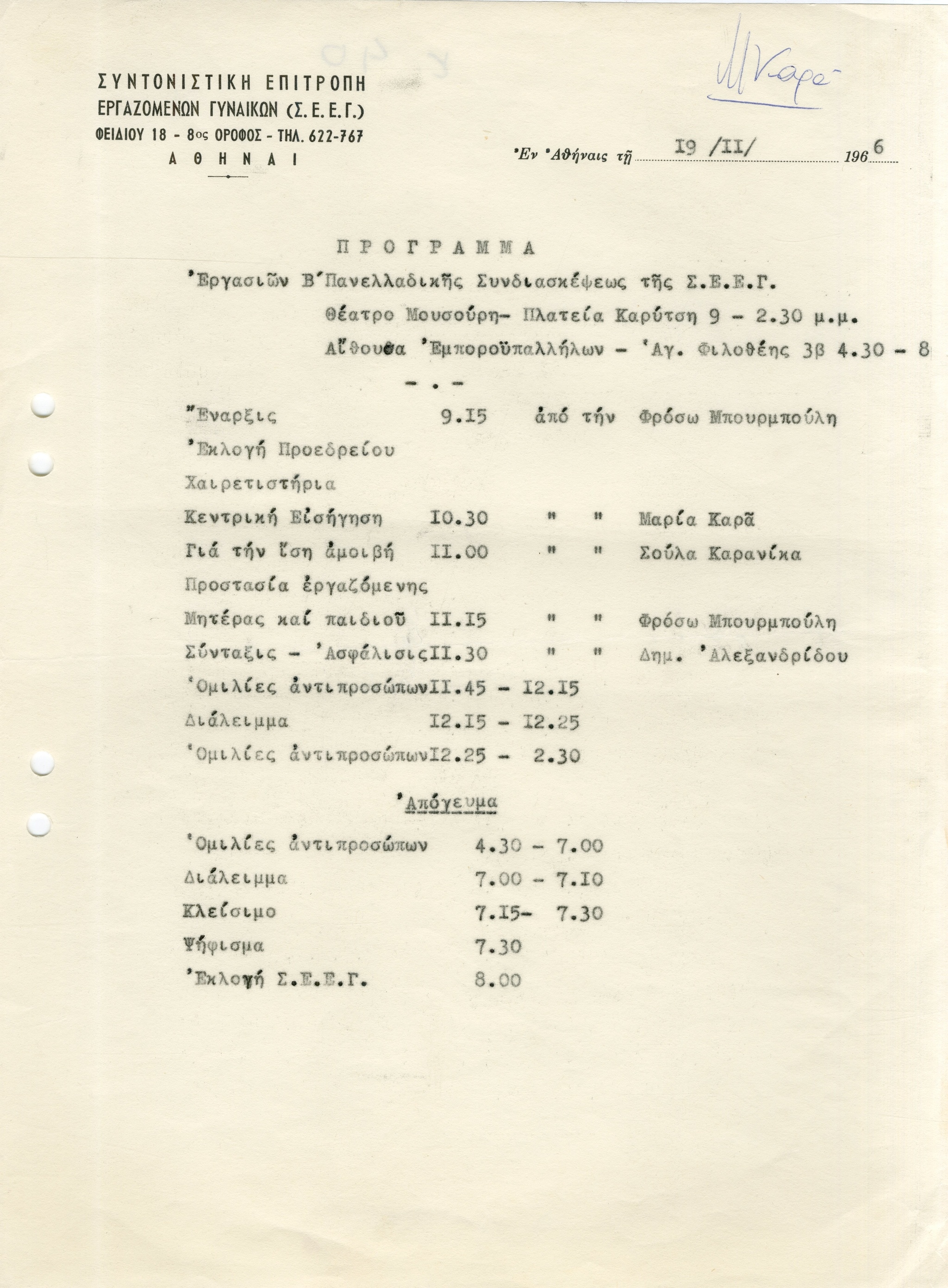
![Correspondence envelope of the Greek leftist Nikos Karras, later husband of Maria Karra, from his period of exile on Ai Stratis [1961] (ASKI, Archive of Maria Karra)](https://aski.gr/wire/wp-content/uploads/2024/03/ASKI_Karra_34.jpg)
